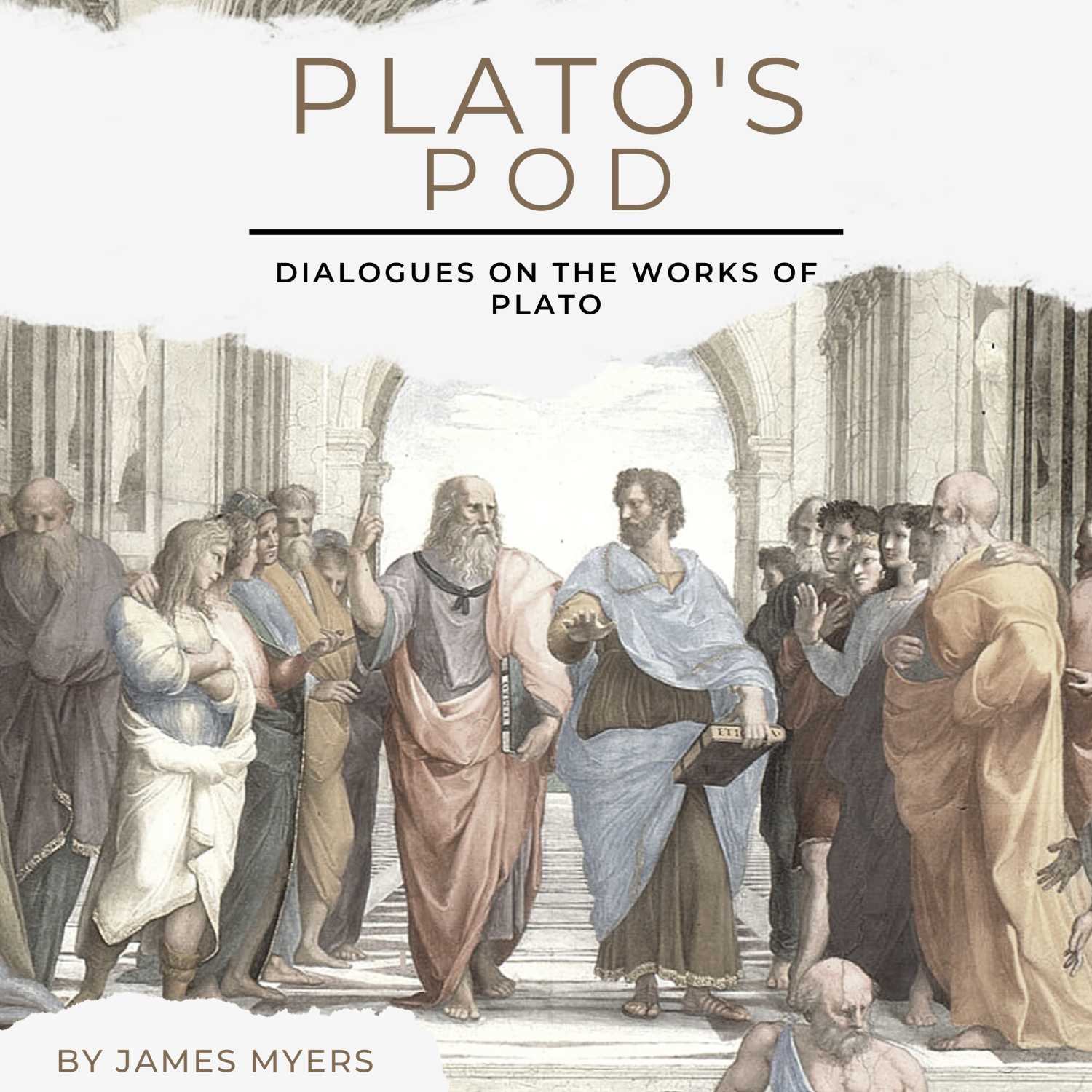Plato's Pod: Dialogues on the works of Plato
Welcome to Plato's Pod, a podcast of discussions on the dialogues of Plato, the philosopher and geometer who wrote nearly 2,400 years ago. Hosted by amateur philosopher James Myers, the first four seasons of the podcast featured group discussions and some incredible insights on many of Plato's works. Now in our fifth season, we continue to probe the philosophy of Plato's dialogues, with invited guests discussing selected topics and applying the timeless philosophical principles to contemporary issues and circumstances.We welcome your thoughts and suggestions for discussion topics, and please contact us if you or someone you know would be interested...
Plato’s Letters VI and VIII: Good Kings are Servants of the Laws and Justice
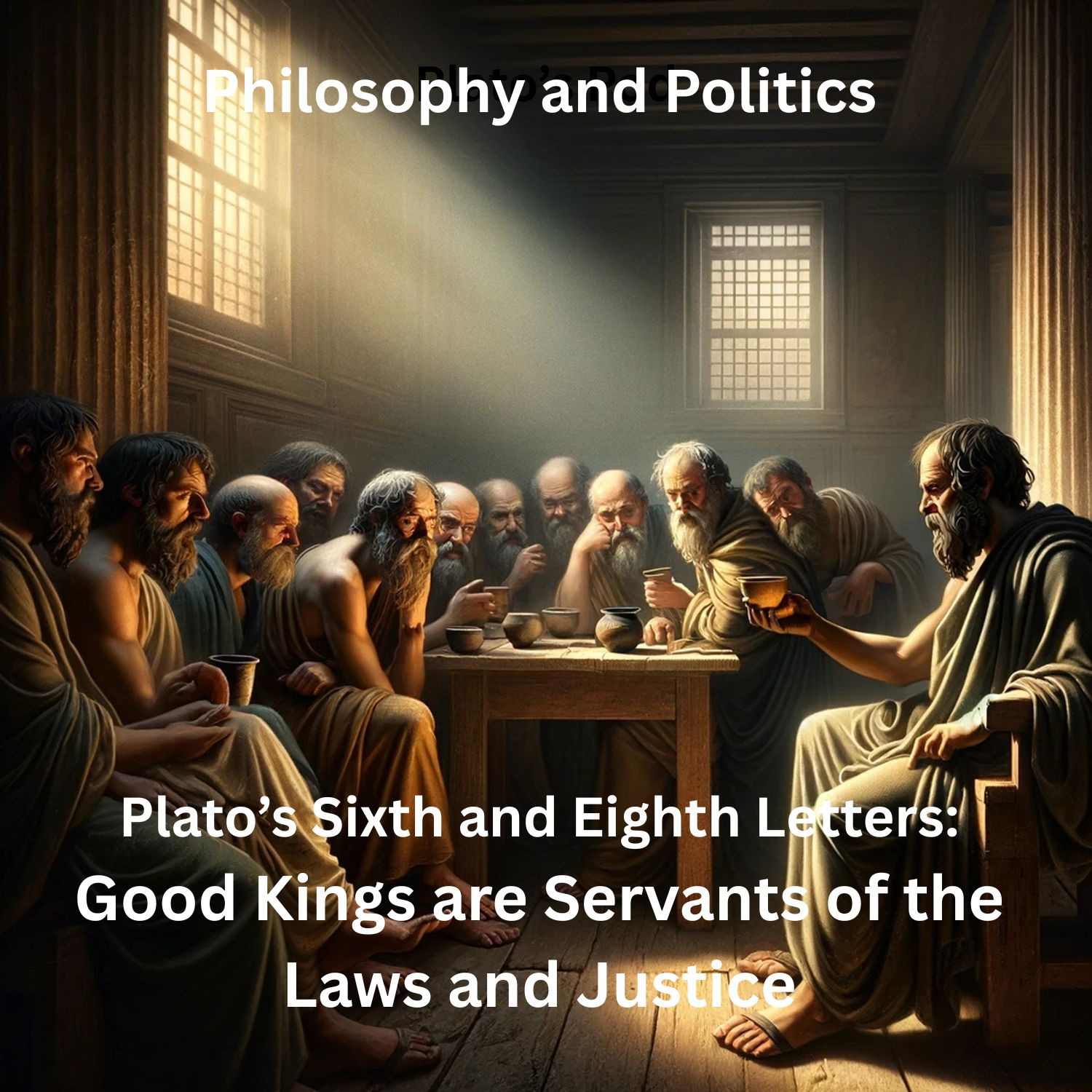
We followed our discussion of Plato’s famous Letter VII by looking at his lesser-known Letters VI and VIII. Together, they form a powerful trilogy in which “Love your neighbour” emerges as an overarching theme, and a principle that Plato says applies above all to kings, whose rule must be tempered by a love for their subjects. Plato’s concept of kingship is very different from the history of misrule by kings who exercise absolute and arbitrary power for their own benefit. The lessons that Plato provides in the three letters, from his own experience in politics 2,400 years ago, are espe...
Plato's Seventh Letter, Part 2: Can Virtue Be Taught?
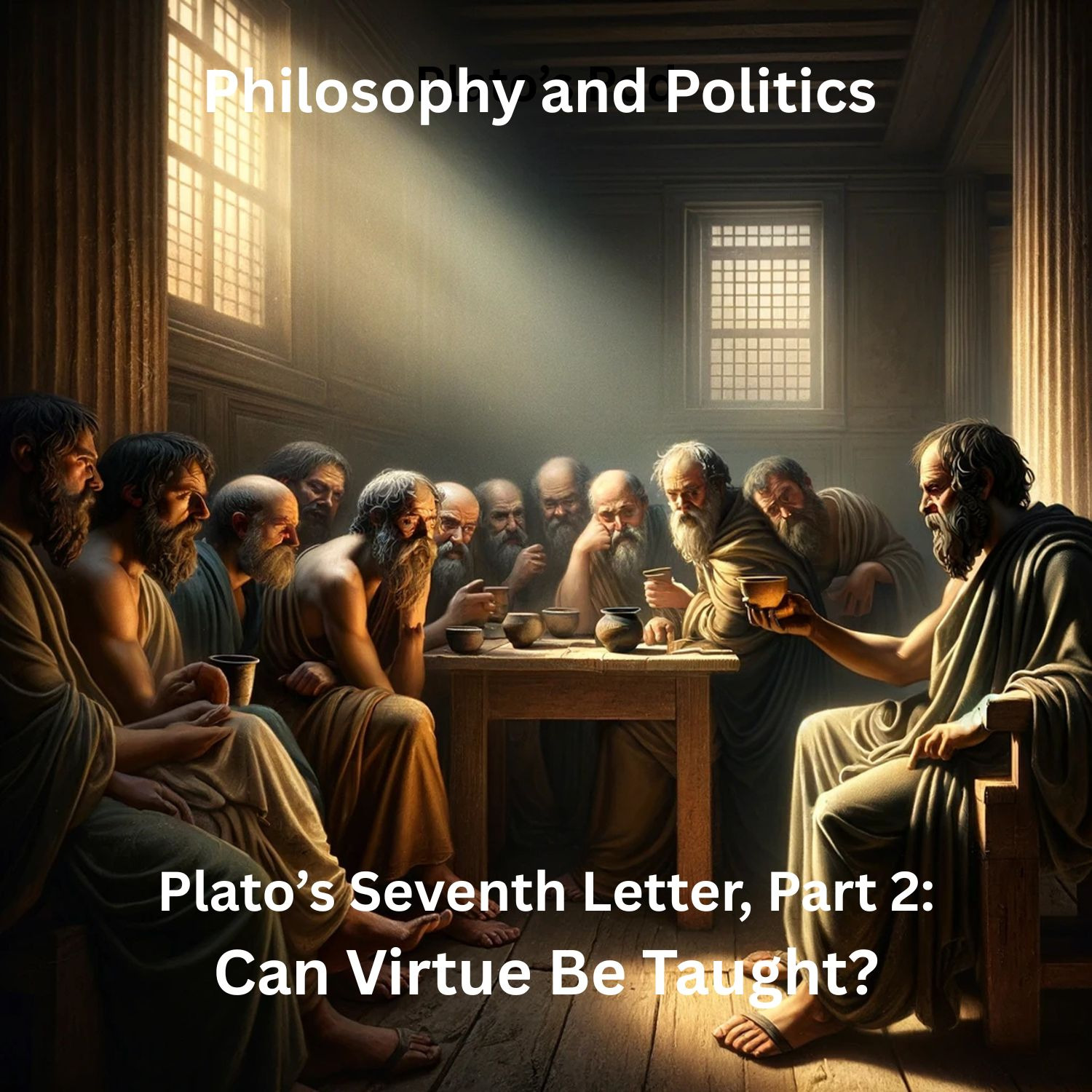
The second half of our discussion on Plato’s Seventh Letter begins with a reading of Plato’s famous statement that he never published any statement of his opinions. That’s both the beauty and, for some, the frustration of Plato to his readers. The reason, as Michael Fitzpatrick states in our dialogue, is that Plato didn’t want to give us the answer key: “The only way your soul benefits is if these thoughts are born afresh in your soul, and you see the truth for yourself.” Plato weaves into his Seventh Letter much of the philosophy that he presented...
Plato's Seventh Letter: On Tyrants Who are Blind to Philosophy
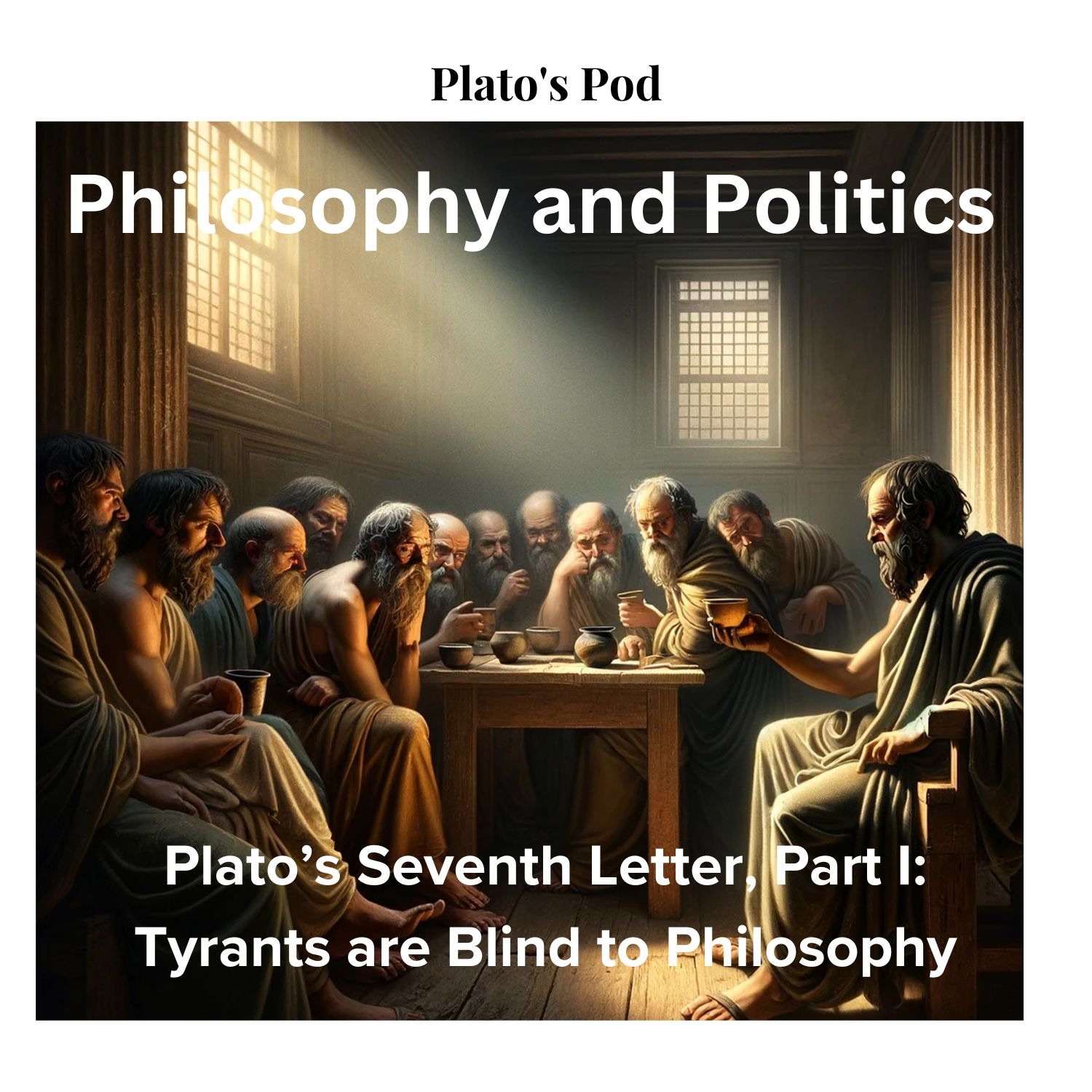
In our first discussion on Plato's letters, we look at his best-known Seventh Letter. In the letter, Plato relates his experience with Dionysius, the tyrannical ruler of Syracuse, and the philosophically minded Dion was was persecuted by Dionysius. Plato's extraordinary recounting of his time teaching both Dionysius and Dion demonstrates his success with the latter, and failure with the former. There are many intriguing parallels between the situation in Syracuse 2,400 years ago, when Plato wrote, and the political and social environment in which we find ourselves today. Plato's account highlights the ills that befall a society whose rulers don't...
Bringing Plato into the 21st Century: a Discussion on Political and Social Principles Spanning 2,400 Years
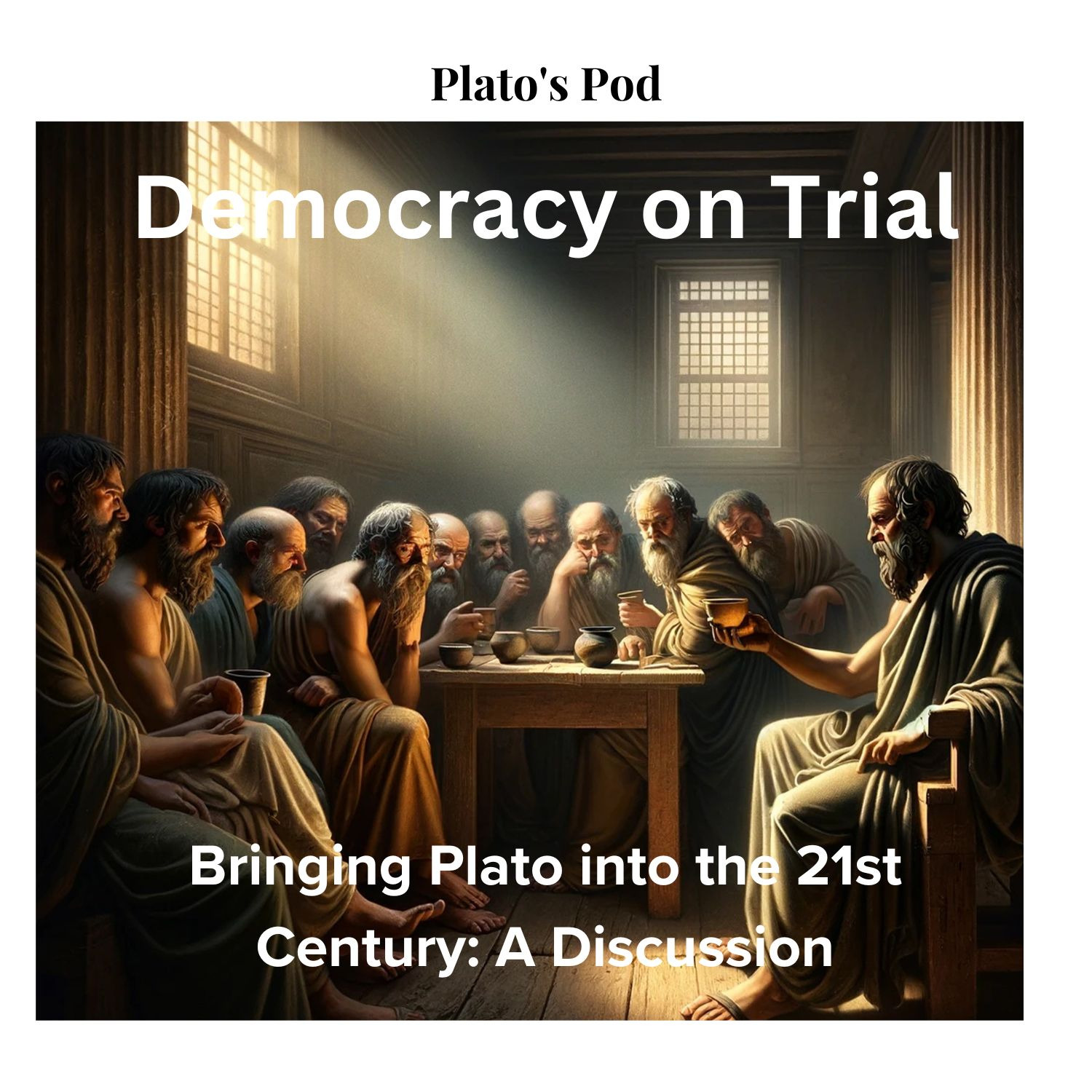
What relevance do the principles and ideas of Plato's dialogues have for the modern, technologically-powered world of 8 billion people? In a wide-ranging discussion, James Myers and Michael Fitzpatrick address current social and political issues around the globe, relating them to the themes presented in a number of Plato's dialogues that include The Republic, The Laws, the Statesman, and the Meno, Questions of leadership, education, wealth, and social cohesion are raised, with some interesting suggestions for a path forward to the common good that was an abiding concern of Plato.
Those interested in Michael's writing on Plato and...
Plato's Laws - Book XII, Part 2: The Nocturnal Council Guarding Virtue
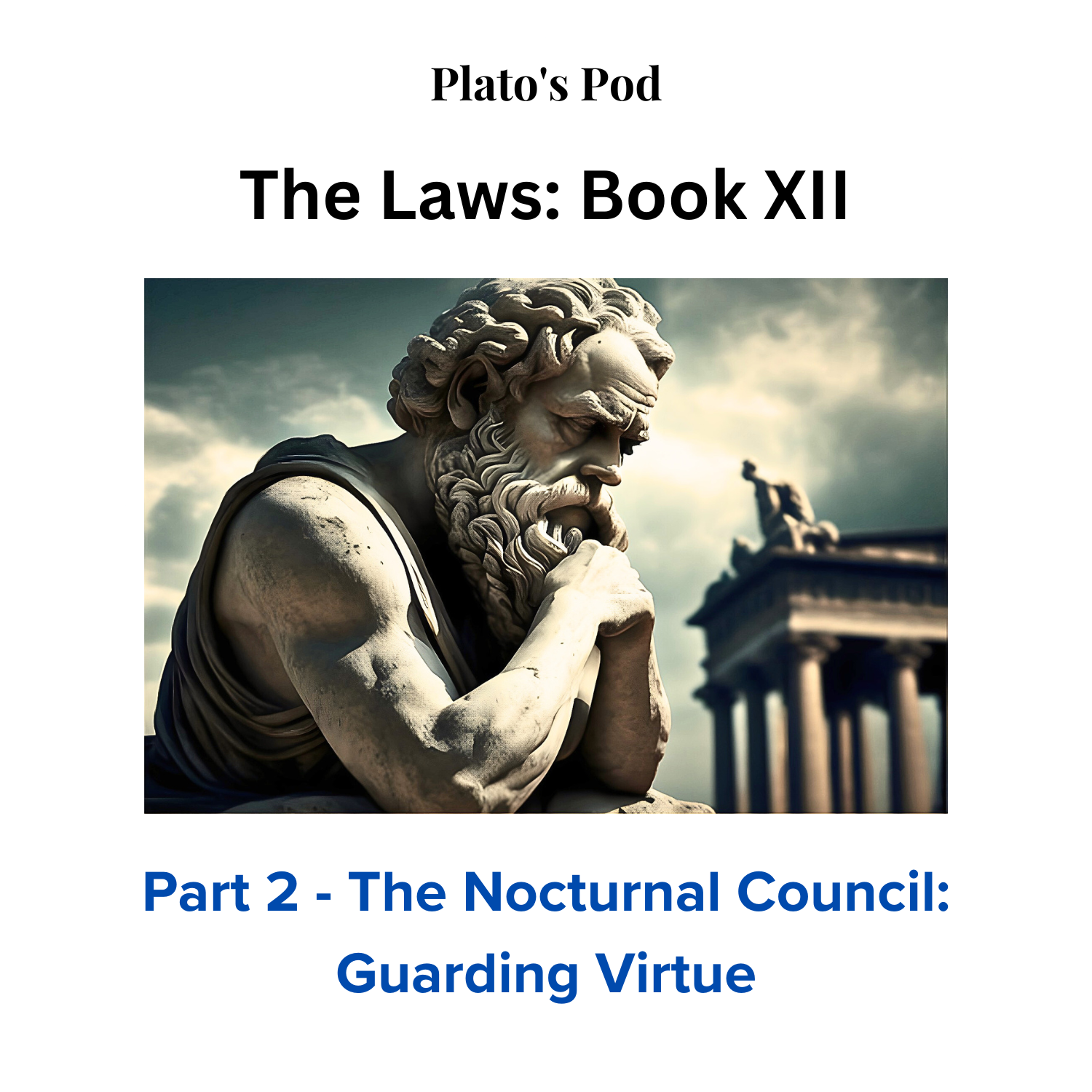
Our final meeting on Plato’s longest dialogue, The Laws, concluded with readings from Book XII, where the Athenian expounds on the operation of a special Nocturnal Council that will act as the head and intellect for Crete’s new colony, Magnesia. On August 4, 2024, members of the Toronto, Calgary, and Chicago Philosophy Meetup groups considered many of the key themes of The Laws, in discussing how the Nocturnal Council would guard the virtue of the colony, its leaders, and its citizens. The unique aim of Magnesia’s constitution to be a virtuous and peaceful community, unlike constitutional goals many modern...
Plato's Laws - Book XII, Part 1: Who Guards the Guardians?
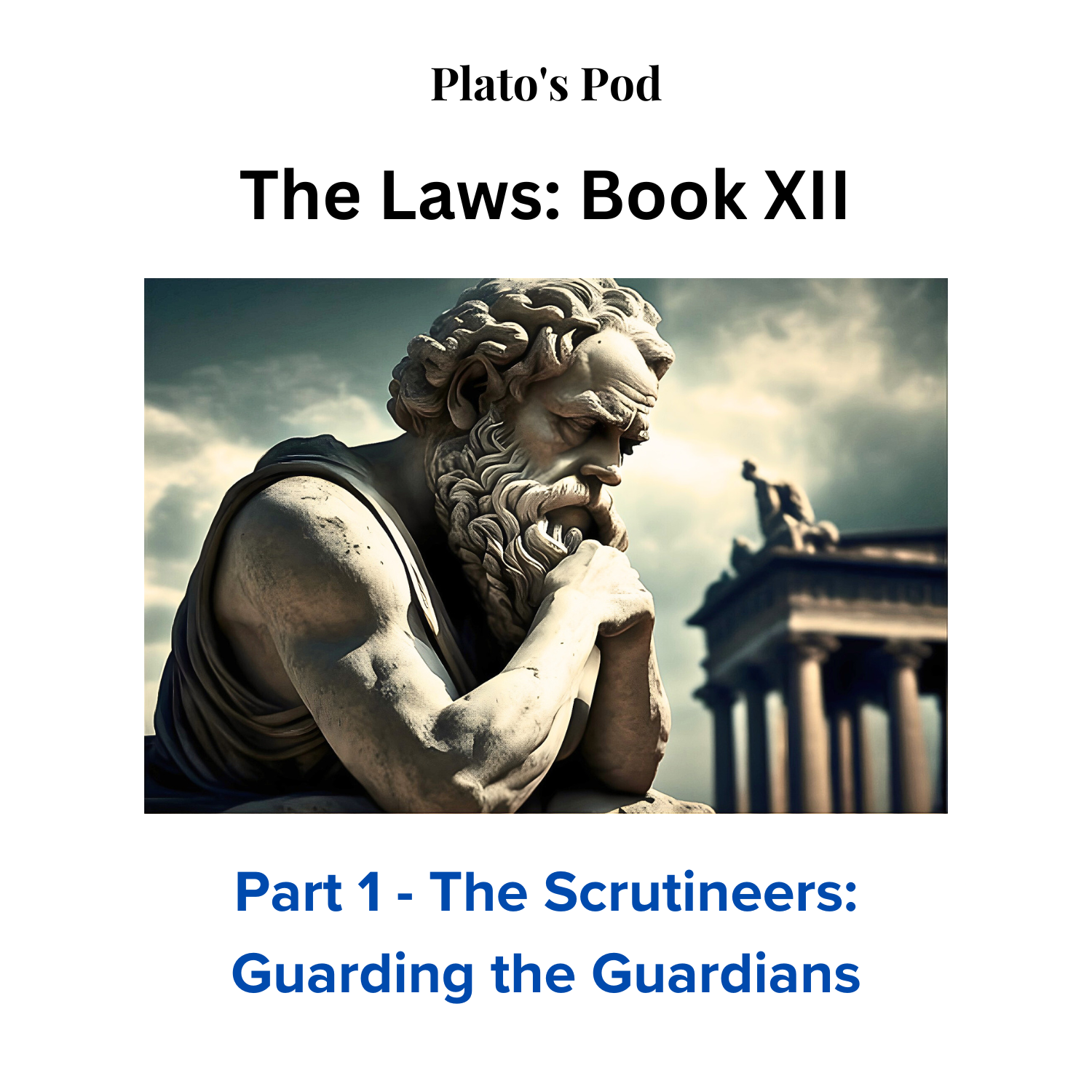
Book XII is the final chapter of Plato’s longest and last dialogue, The Laws, and addresses the challenge of how a community can thrive when its leaders act against the collective interest. Having set out a novel constitution that promotes the virtue of citizens and leaders in Crete’s new colony, Magnesia, the three characters in the dialogue turn their attention to protecting the colony from vice that sometimes arises from the greed and self-interest of rulers. On July 21, 2024, members of the Toronto, Calgary, and Chicago Philosophy Meetup groups met to consider the proposal discussed by the Athenian, Clin...
Plato's Laws - Book XI: Property and Punishment in Magnesia
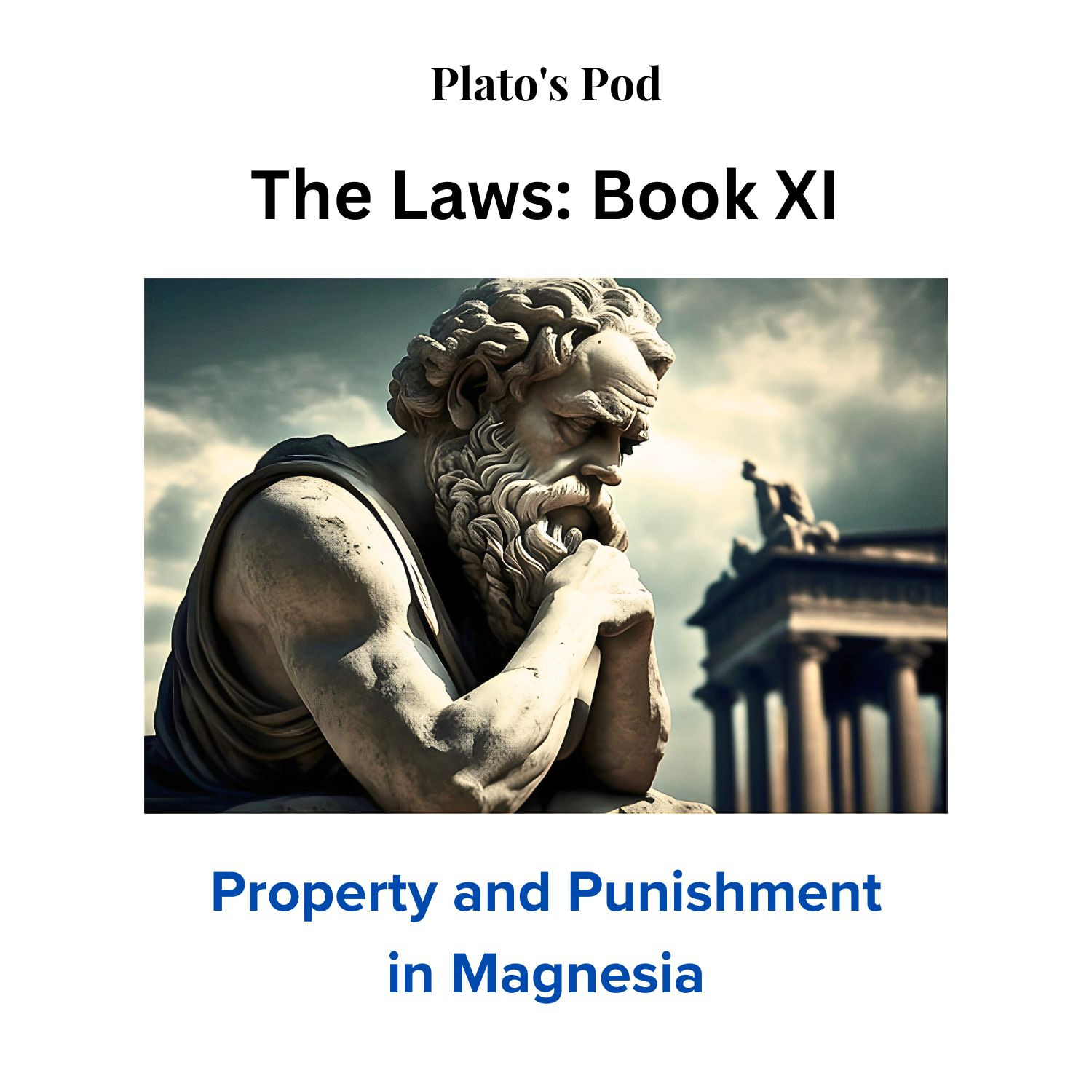
Book XI of Plato's last and longest dialogue represents a dramatic shift in tone from Book X, where we began our series on The Laws eleven episodes ago. On July 7, 2024, members of the Toronto, Calgary, and Chicago Philosophy Meetup groups convened to consider the thirty-three laws that the Athenian proposes to Clinias and Megillus for the regulation of trade and property in Crete's new colony, Magnesia. Some of the Athenian's laws are exceptionally harsh, including one that would allow a passer-by over the age of thirty to administer a beating with impunity to any seller in the market who...
Plato's Laws - Book IX: Legislating the Good for Unjust Acts Committed
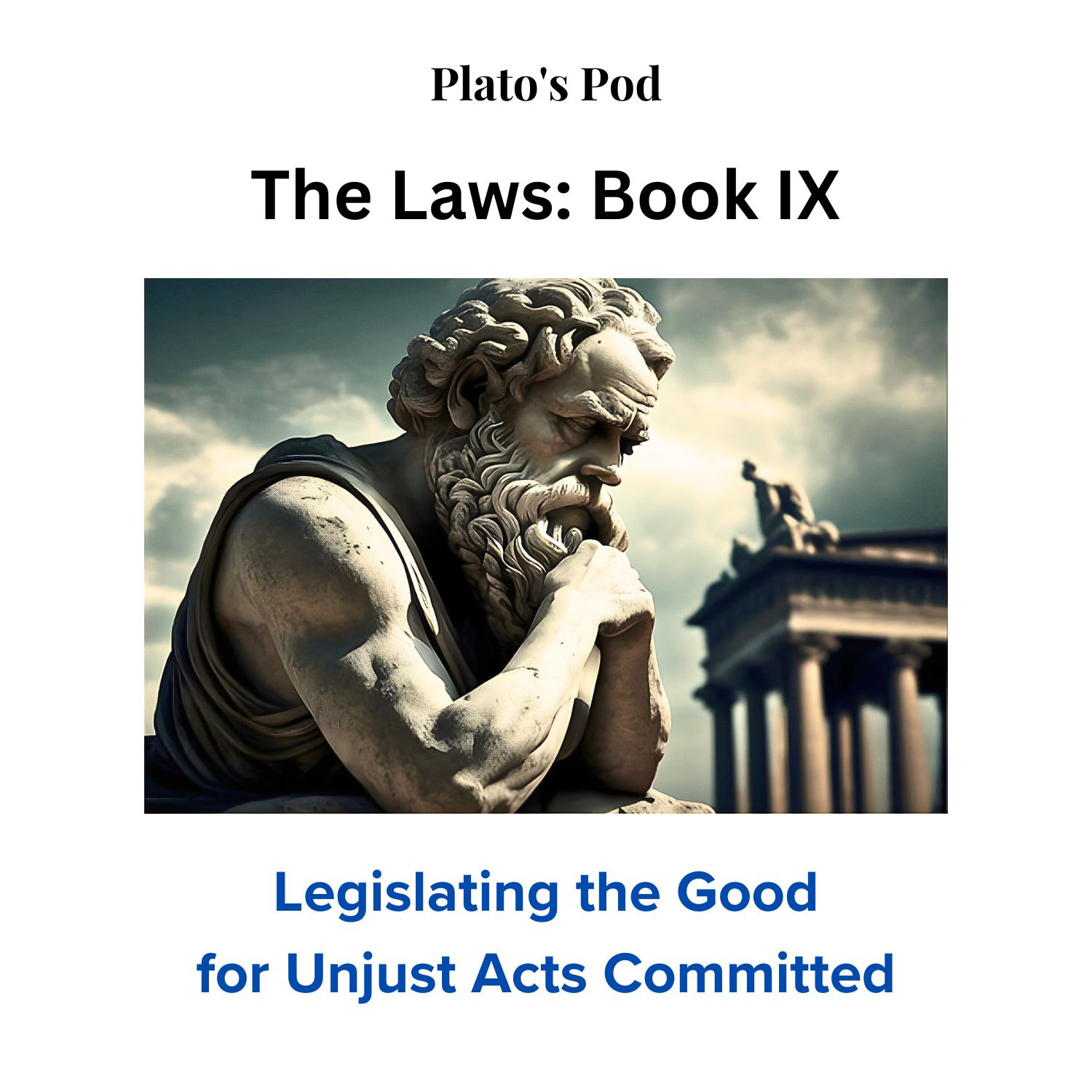
In our eleventh meeting on Plato's longest and final dialogue, we set aside Book VIII and moved from Book VII to read selections from Book IX. In Book IX, the Athenian, Clinias from Crete, and Megillus from Sparta address the practical questions of administering justice for those in Crete's new colony who might commit evil acts. On June 23, members of the Toronto, Calgary, and Chicago Philosophy Meetup groups contributed thoughts to the approaches suggested by the Athenian, the first being that the laws should have preambles to persuade with reason those who might consider unjust acts. The analogy of...
Plato’s Laws – Book VII: Teaching and Legislating for Harmony
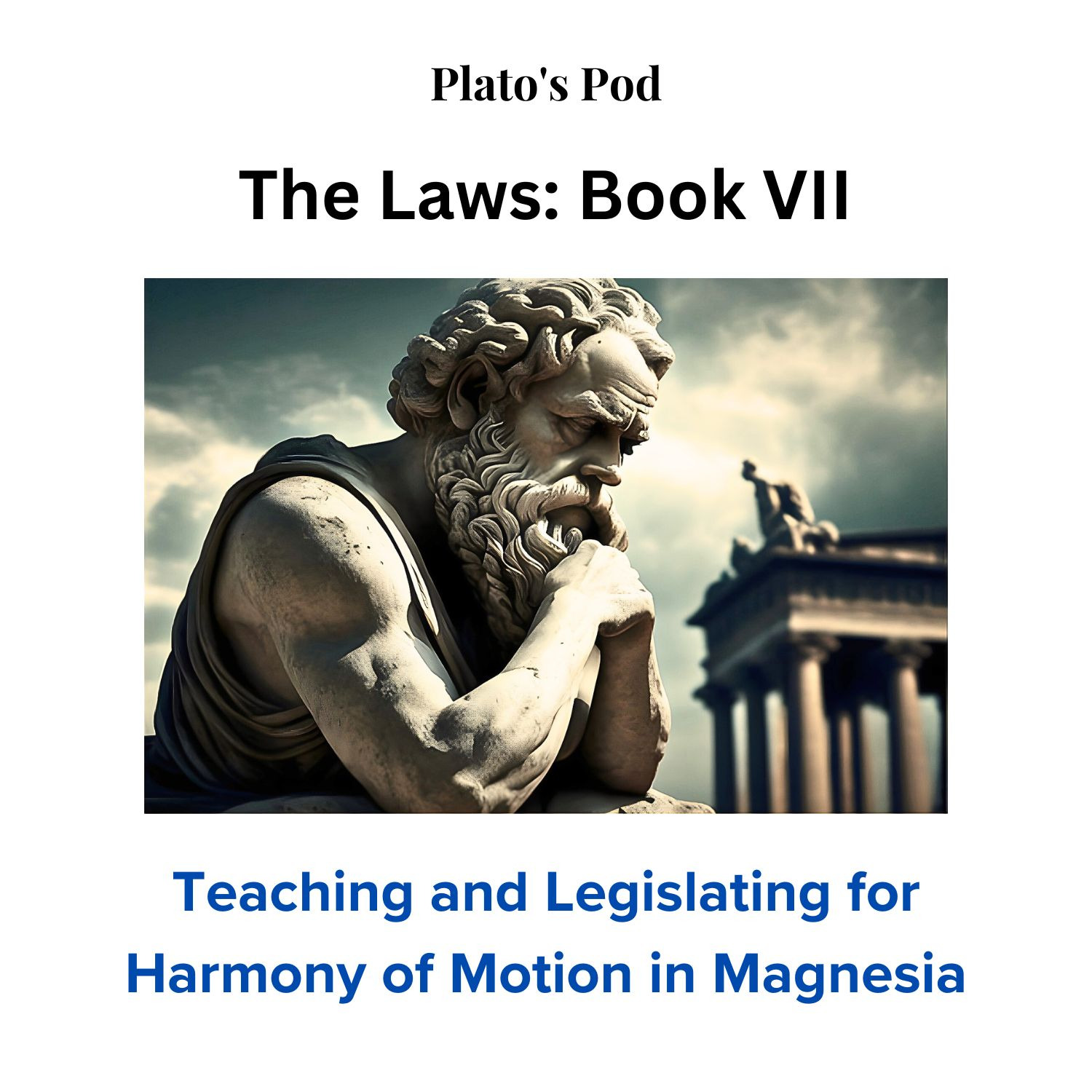
In our series on Plato’s longest and last dialogue, The Laws, on June 9, 2024 members of the Toronto, Calgary, and Chicago Philosophy Meetup groups turned to Book VII. There, the three characters – the Athenian, Clinias from Crete, and Megillus from Sparta – discuss the raising of children in Crete’s new colony, Magnesia. They begin by exploring the harmony of the colony’s laws with the customs and habits of its citizens, then they discuss the instruction of children. The Athenian ends by explaining that appreciating the relationships of numbers and shapes can deliver understanding of our individual limitations and collective...
Plato's Laws - Book VI: Founding and Governing a Virtuous Society
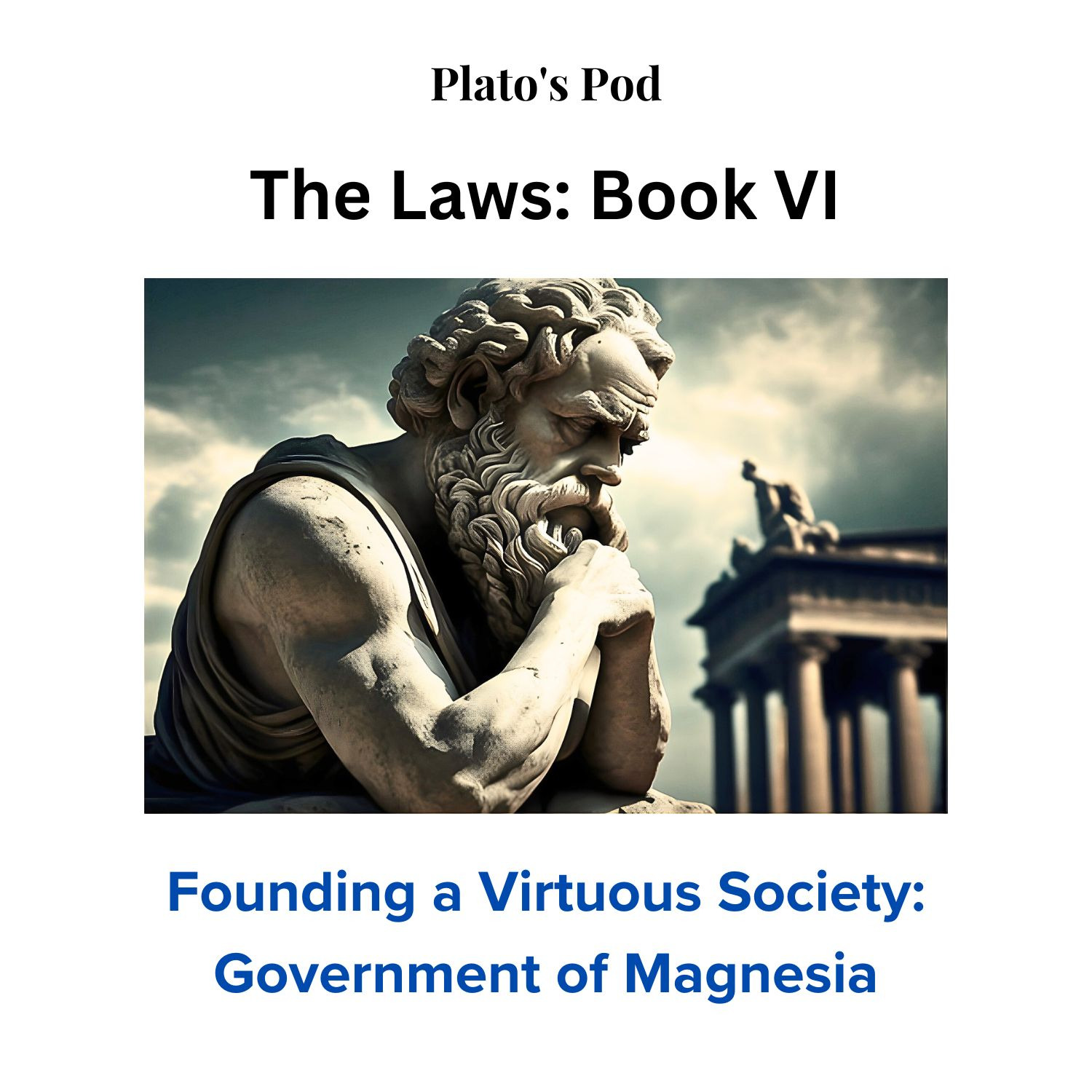
In Book VI of his last dialogue, The Laws, Plato has the Athenian, Clinias from Crete, and Megillus from Sparta discuss the governing structure for Crete’s new colony, to be called Magnesia. It’s a mixed system involving elements of democracy and monarchy, and one that places responsibility on every citizen to perform duty for the community and to choose the Guardians of the Laws through a rigorous system of vetting. On May 26, 2024, members of the Toronto, Calgary, and Chicago Philosophy Meetup groups discussed the Athenian’s proposals for the government of the colony with a view to securi...
Plato’s Laws – Book V: The Soul in Communal Harmony
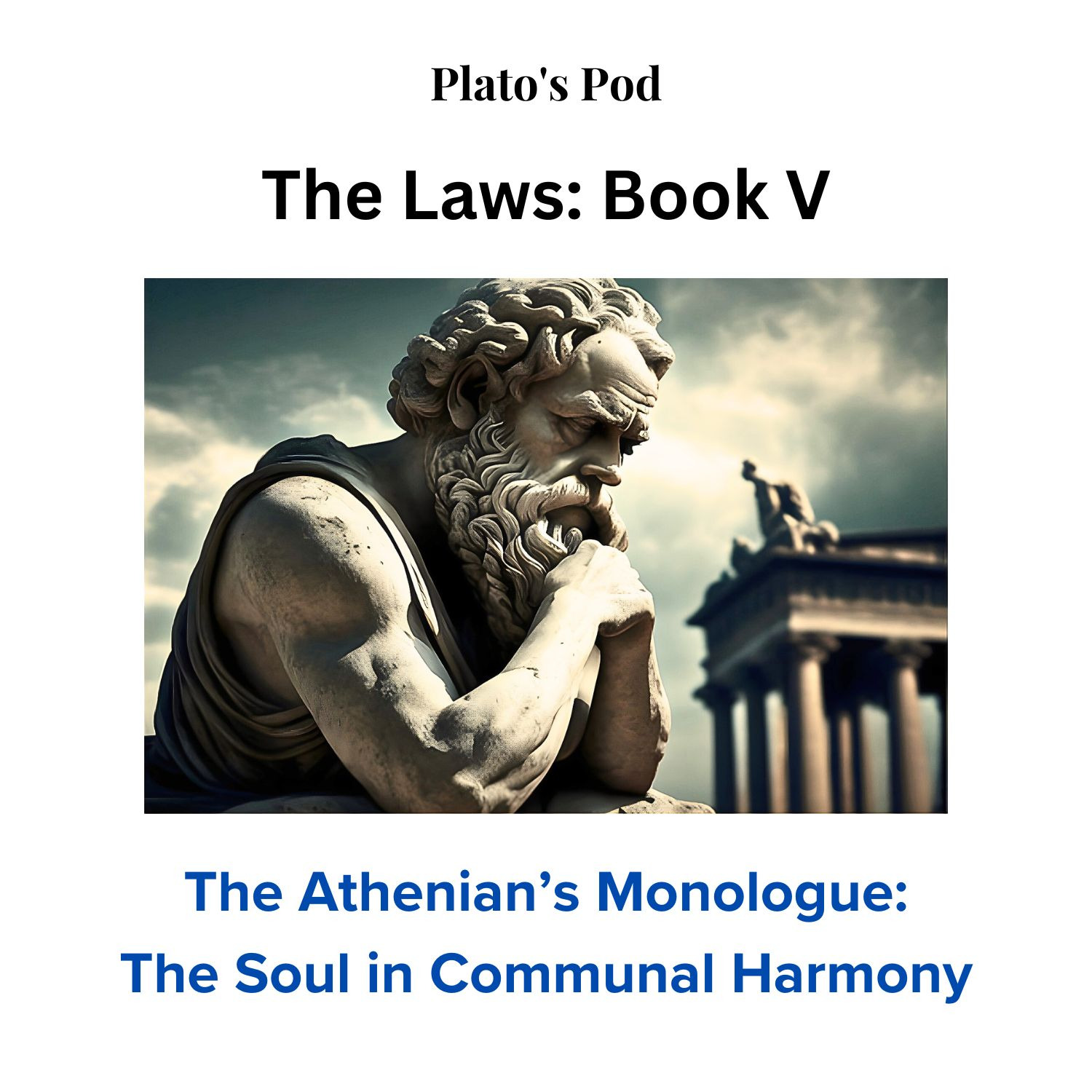
In Book V of Plato’s Laws, only the unnamed Athenian speaks while the other two characters, Clinias from Crete and Megillus from Sparta, listen to his presentation on the power of the soul, harmony in human behaviour, and the just division of property for Crete’s new colony to be called Magnesia. On May 12, 2024, Plato’s Pod held its eighth meeting on Plato’s longest and last dialogue, with members of the Toronto, Calgary, and Chicago Philosophy Meetup groups participating. We began by listening to the Athenian’s compelling exposition on the nature of the soul as the master in...
Plato's Laws - Book IV: Leadership by Reason
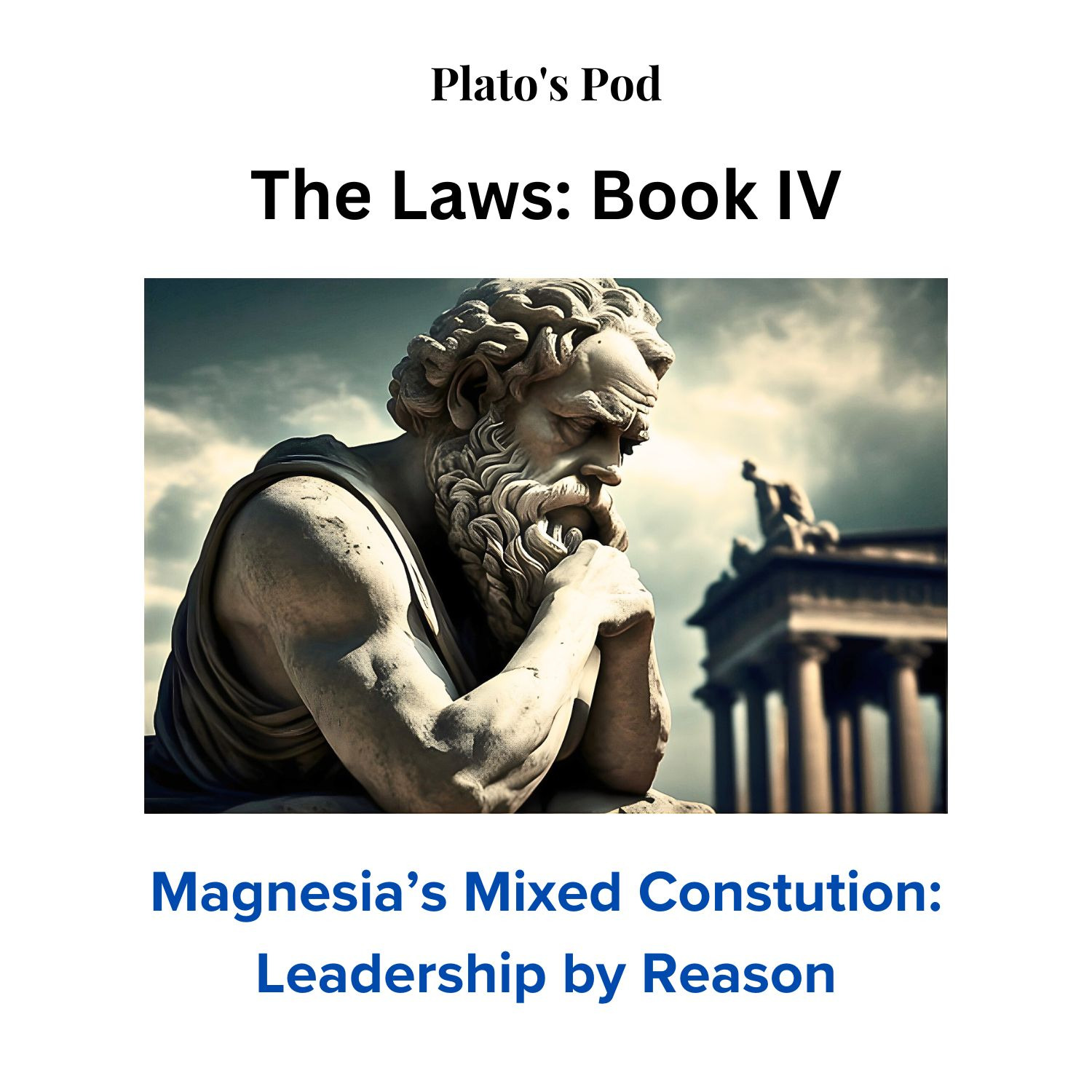
Book IV of Plato's longest dialogue, The Laws, places the spotlight on the qualities of virtuous leadership as the three characters - the unnamed Athenian, Clinias from Crete, and Megillus from Sparta - discuss the establishment of Crete's new colony. The skill of the leader, says the Athenian, must help guide the colony through the risks and rewards of chance and opportunity. These, he says, reign supreme in the universe where God, not man, is the measure of all things. A spirited discussion ensued when members of the Toronto, Calgary, and Chicago Philosophy Meetup groups convened on April 28, 2024. We...
Plato’s Laws – Book III: Finding Unity and Reason in the Balance of Reason
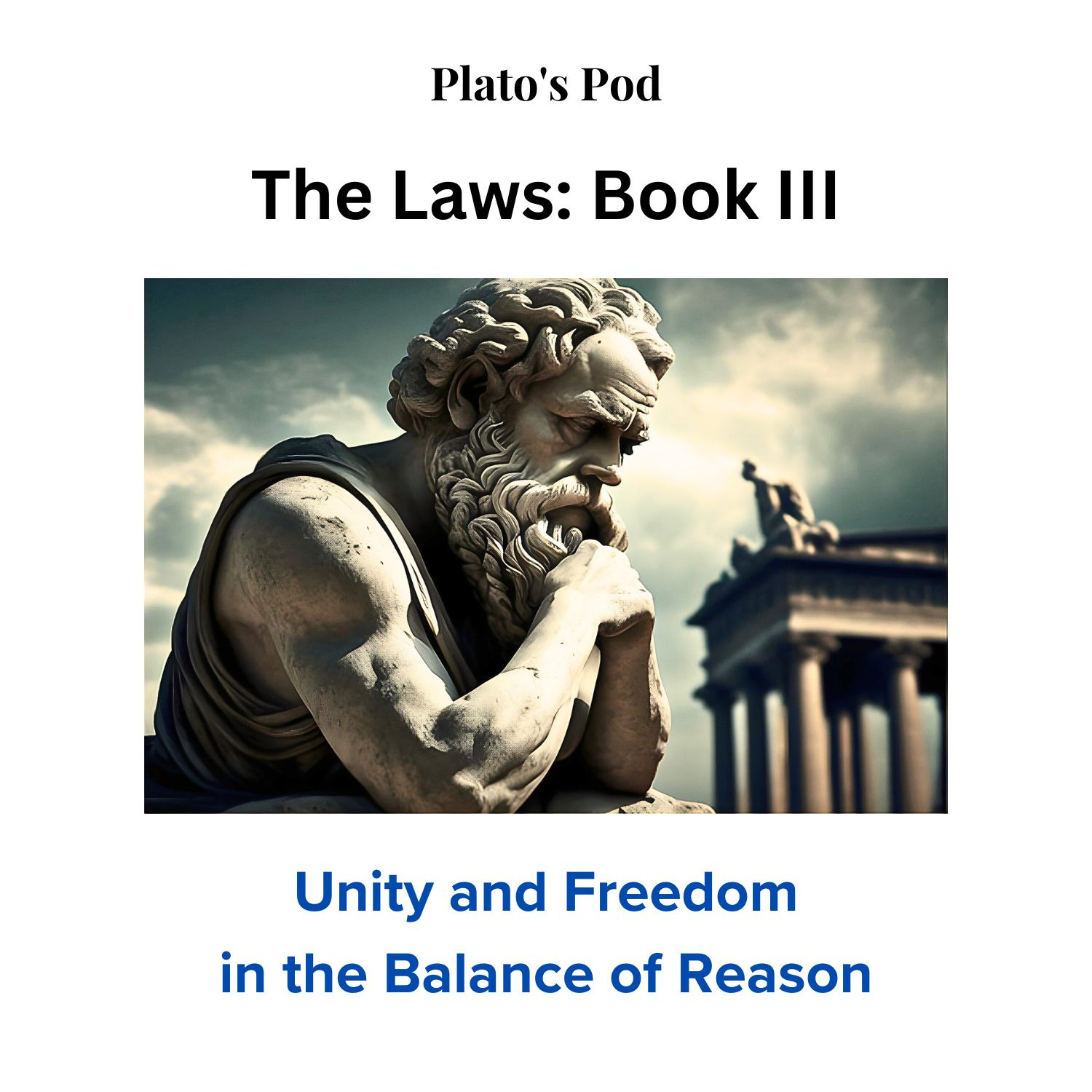
Our discussion on Book III of Plato’s longest dialogue, The Laws, began by considering the consequences of natural cataclysms that invariably befall humanity. Plato opens the book with the emergence of early human communities that begin with goodwill when people are few and resources are relatively abundant, and many fascinating observations emerged when members of the Toronto, Calgary, and Chicago Philosophy Meetup groups convened on April 14, 2024 to consider this and the other themes of Book III. One participant asked whether humans are inherently bad, and others highlighted Plato’s understanding of human behaviour in the context of political econ...
Plato's Laws - Book II: Learning the Pleasure of the Good and Beautiful
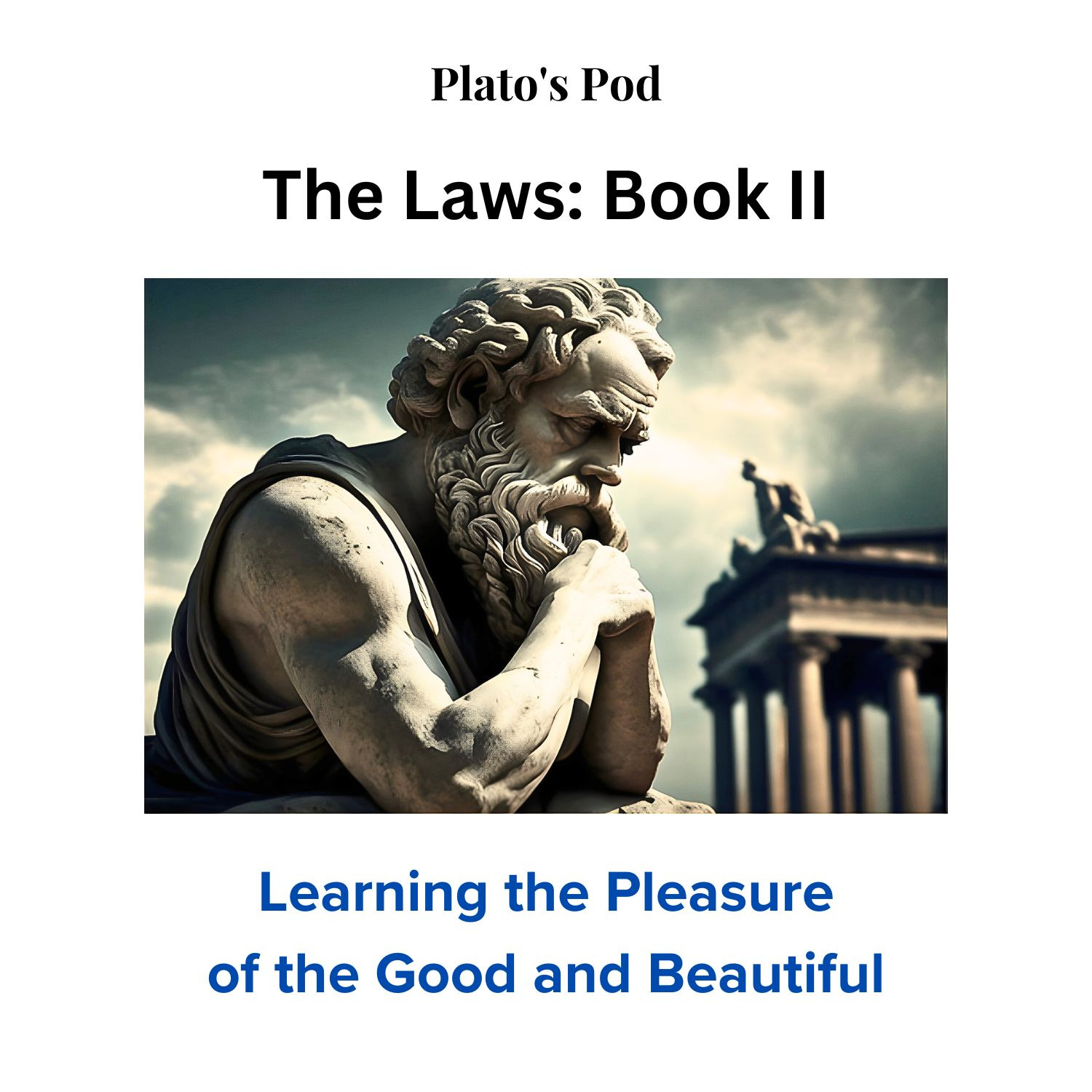
Our coverage of Plato’s longest dialogue, The Laws, continues with a discussion on Book II, building on the connection of virtue and happiness that was emphasized in Book I. As the Athenian, Cretan, and Spartan proceed in considering the ideal framework for a constitution, the theme of harmony in the soul and in the community is central to Book II. How are children to be educated, to instill in them a sense of virtue and to find happiness in its pursuit? When members of the Toronto, Calgary, and Chicago Philosophy Meetup groups convened on March 24, 2024, questions were raised ab...
Plato's Laws - Book I, Part 2: Mastering Pain and Pleasure in a Virtuous Society
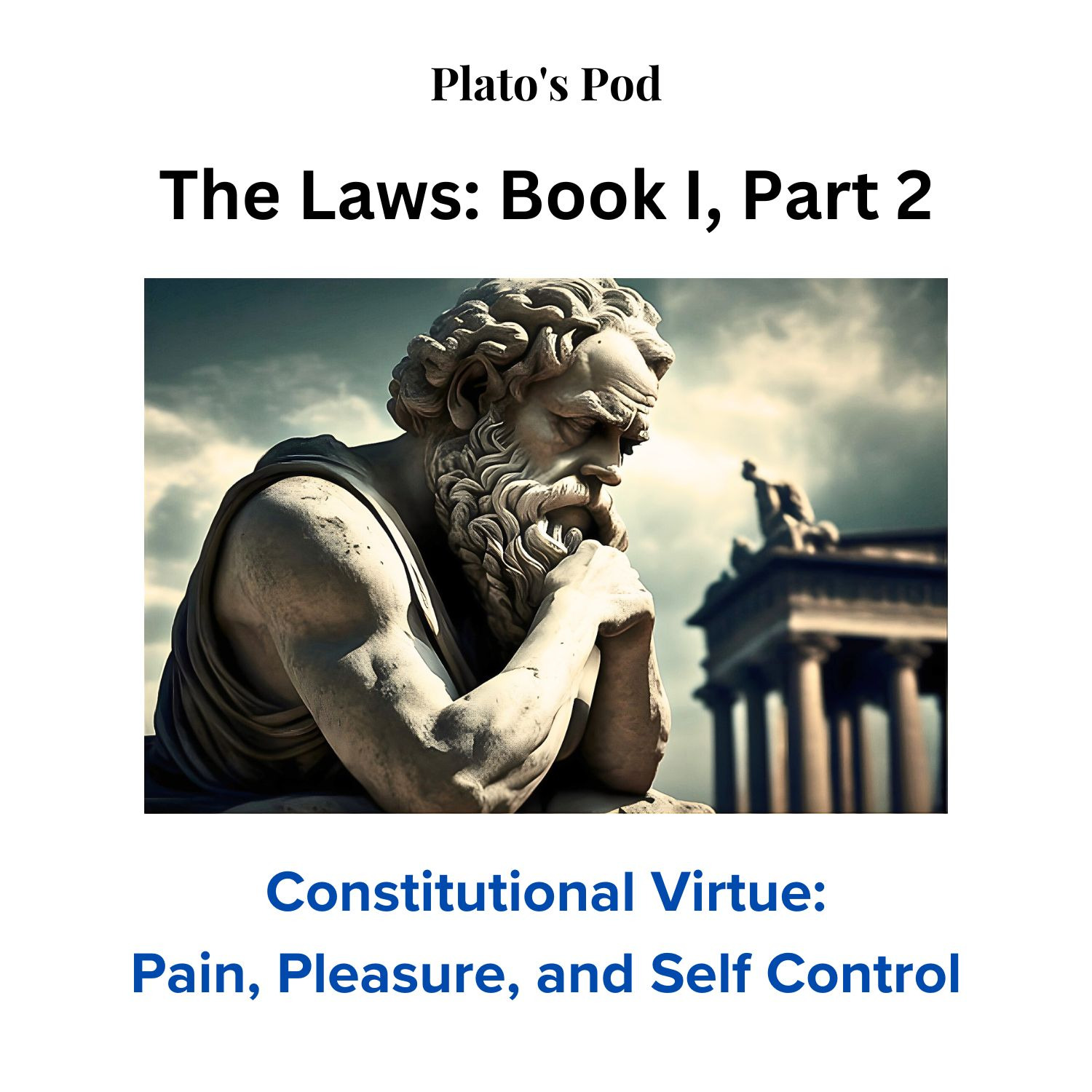
If the constitution for Crete’s new colony, Magnesia, is to succeed in setting the conditions for virtue among its citizens, self control and courage will be required to conquer the pains but equally the pleasures that visit every human life. This is the conclusion of the Athenian, Clinias, and Megillus in the second part of Book I of Plato’s dialogue The Laws, which highlights the benefits of harmony to a society that equips citizens both to govern and to be governed. Members of the Toronto, Calgary, and Chicago Philosophy Meetup groups met on March 3, 2024 to explore these them...
Plato's Laws - Book I, Part 1: A Constitution for Peace and Virtue
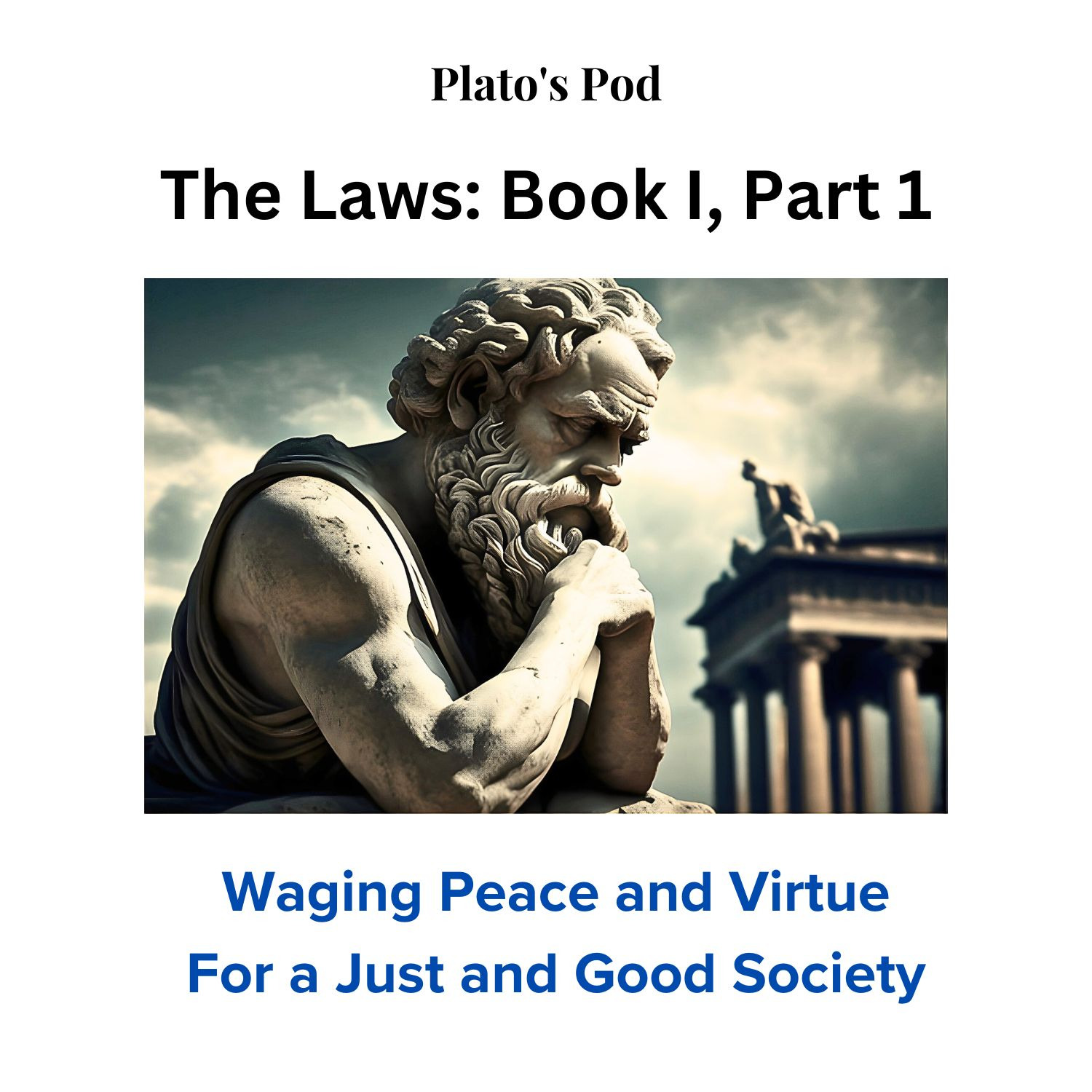
Plato’s Pod began discussing Book I of Plato’s longest dialogue, the Laws, which advances the argument for the constitution of Crete’s new colony to cultivate the virtue of its citizens. It’s unlike the war-focussed constitution of Crete itself, represented in the discussion by the character Clinias, and the laws of Sparta whose spokesman is Megillus, but together with the unnamed Athenian they agree that a society of virtuous citizens will be peaceful and enduring.
On February 18, 2024, members of the Toronto, Calgary, and Chicago Philosophy Meetup groups turned to the dialogue’s beginning armed with knowl...
Plato's Laws - Book X, Part 2: Reason as the Cause in the Middle of It All
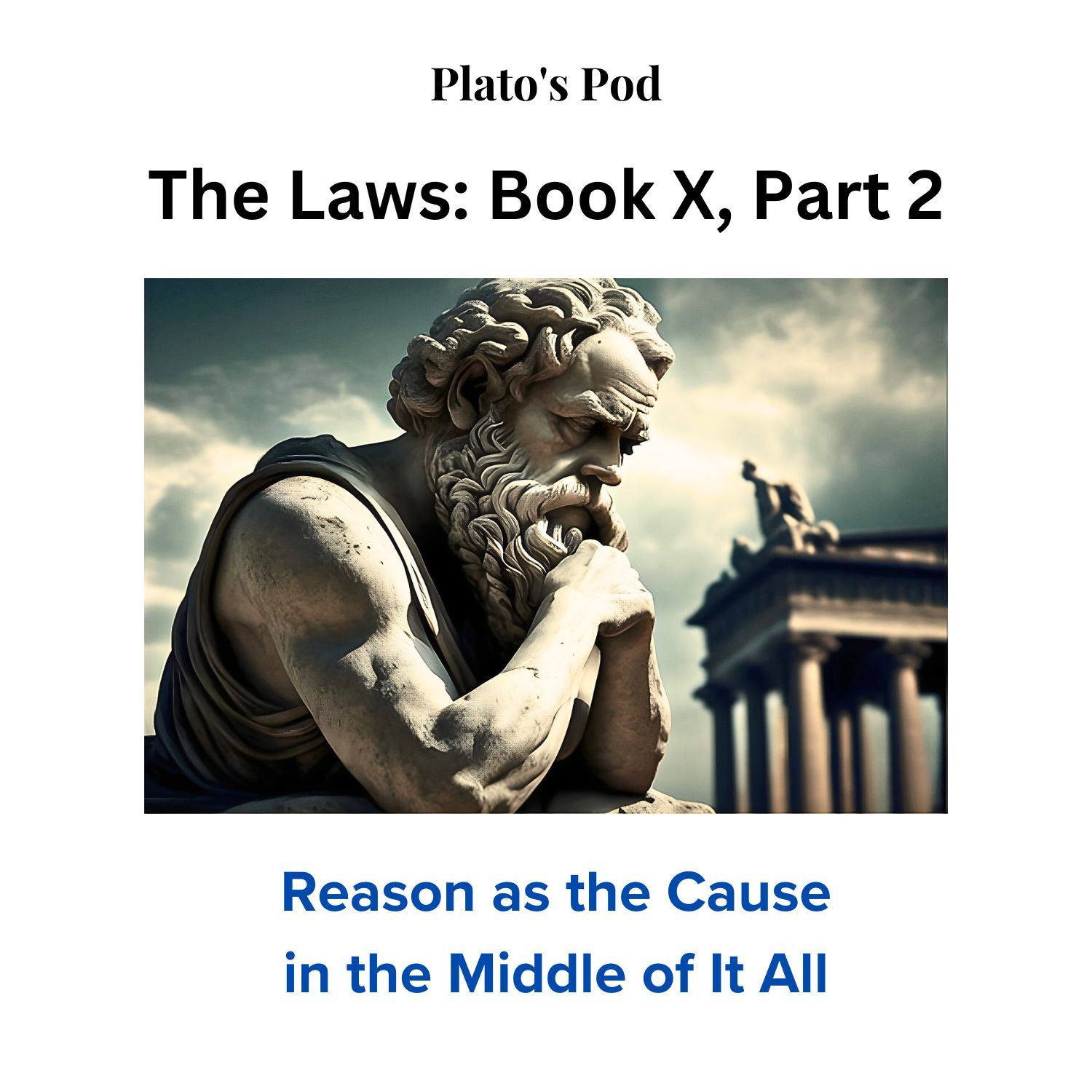
Plato's Pod continues its series on Plato's longest work, The Laws, picking up where we left off two weeks ago with the second part of Book X, near the end of the dialogue. In Book X, the three characters - an unnamed Athenian speaking with Clinias (from Crete) and Megillus (from Sparta) - set out the logic for reason as the primary cause of the universe, and reason's central function in the soul's moderation of need and desire. But have the three gone too far in prescribing the death penalty for any citizen of Crete's new colony, Magnesia, who...
Plato's Laws - Book X, Part 1: Universal Patterns
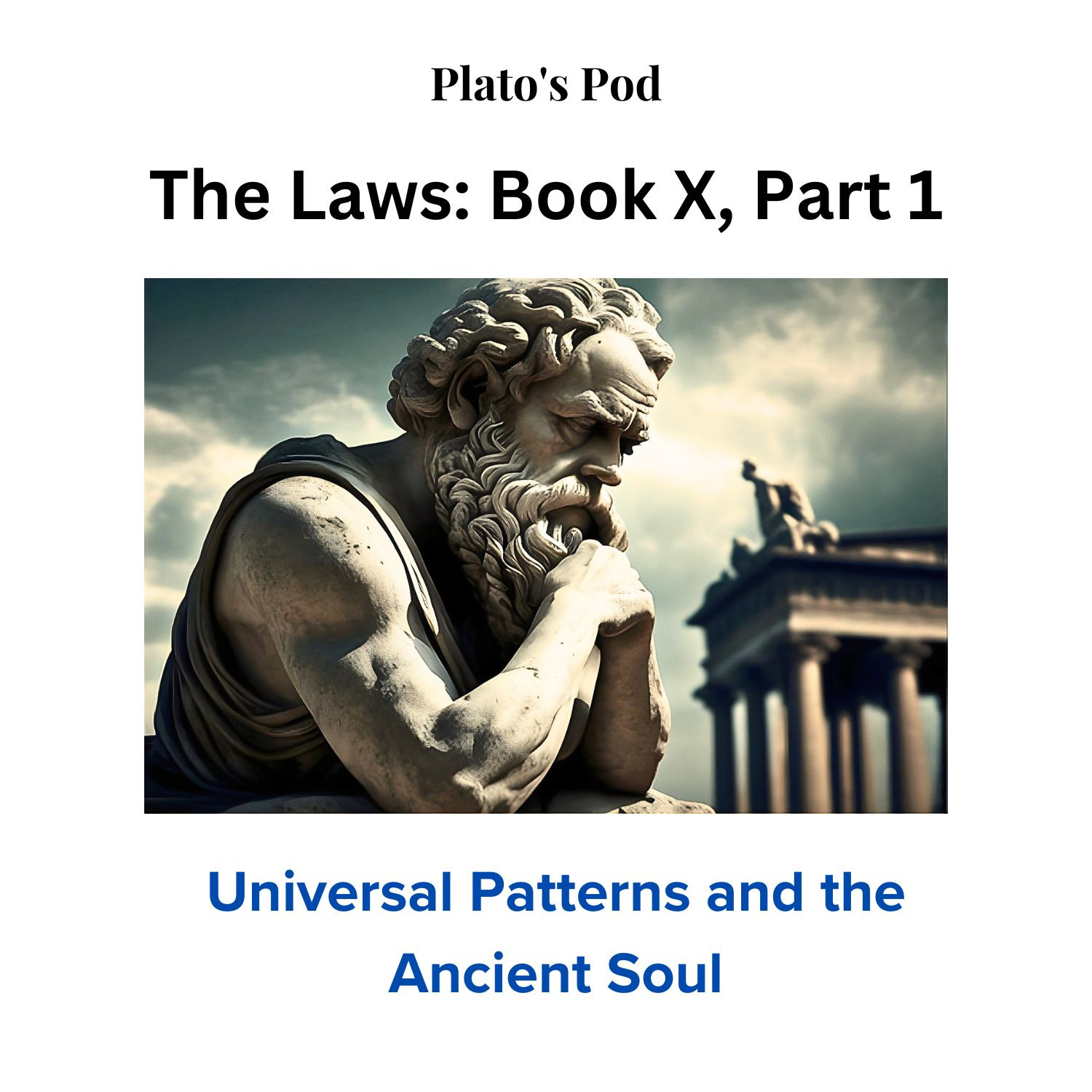
On January 21, 2024, Plato's Pod began its extended series on Plato's longest and perhaps most enigmatic and impenetrable dialogue, The Laws, which is said to have been his final work. Members of the Toronto, Calgary, and Chicago Philosophy Meetup groups began by discussing Book X, near the end of the dialogue, which features Plato's cosmology. The immaterial soul, says the unnamed Athenian speaking with a Cretan and Spartan, is the oldest thing in the universe, older than material physical matter and therefore the primary cause of all motion. Our discussion ranged from Plato's definition of "god" and the soul's power...
Plato's Critias Revisited: The Tale of Atlantis and the Harmonics of Memory
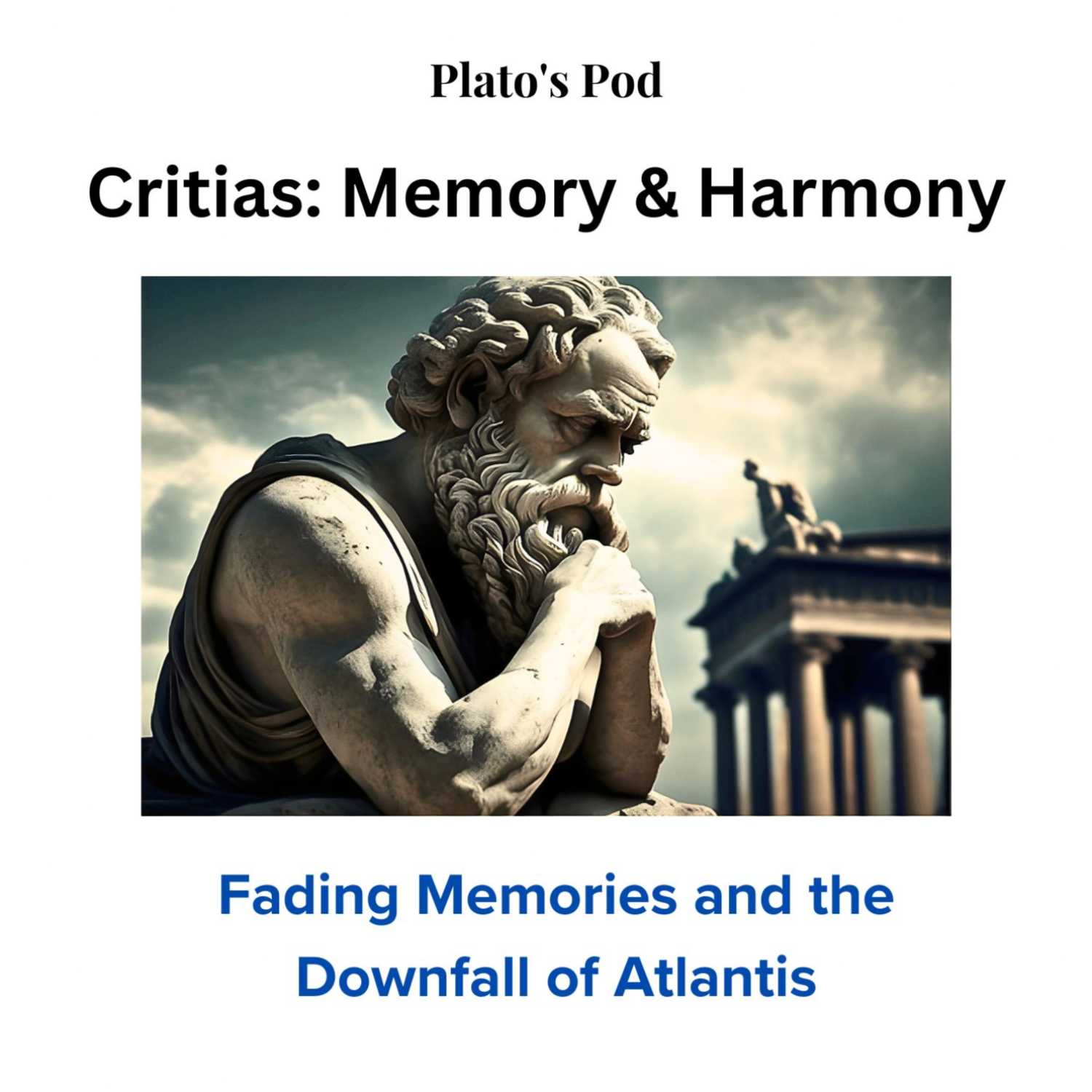
Plato brought the legend of Atlantis to the world in the Timaeus, and in the Critias provided many details of the fabulously wealthy and technologically advanced society that fell into disharmony and disappeared in a great earthquake 9,000 years earlier. As the character Critias relates the story, over time the Atlanteans gradually forgot their divine origin from the god Poseidon and began to pursue material wealth, losing their harmony and bringing upon themselves the punishment of Zeus. On December 3, 2023, members of the Toronto, Calgary, and Chicago Philosophy Meetup groups addressed the curious ending of the tale told by the character...
Plato's Timaeus Revisited: Part IV - The Soul's Perceptions in the Universal Middle
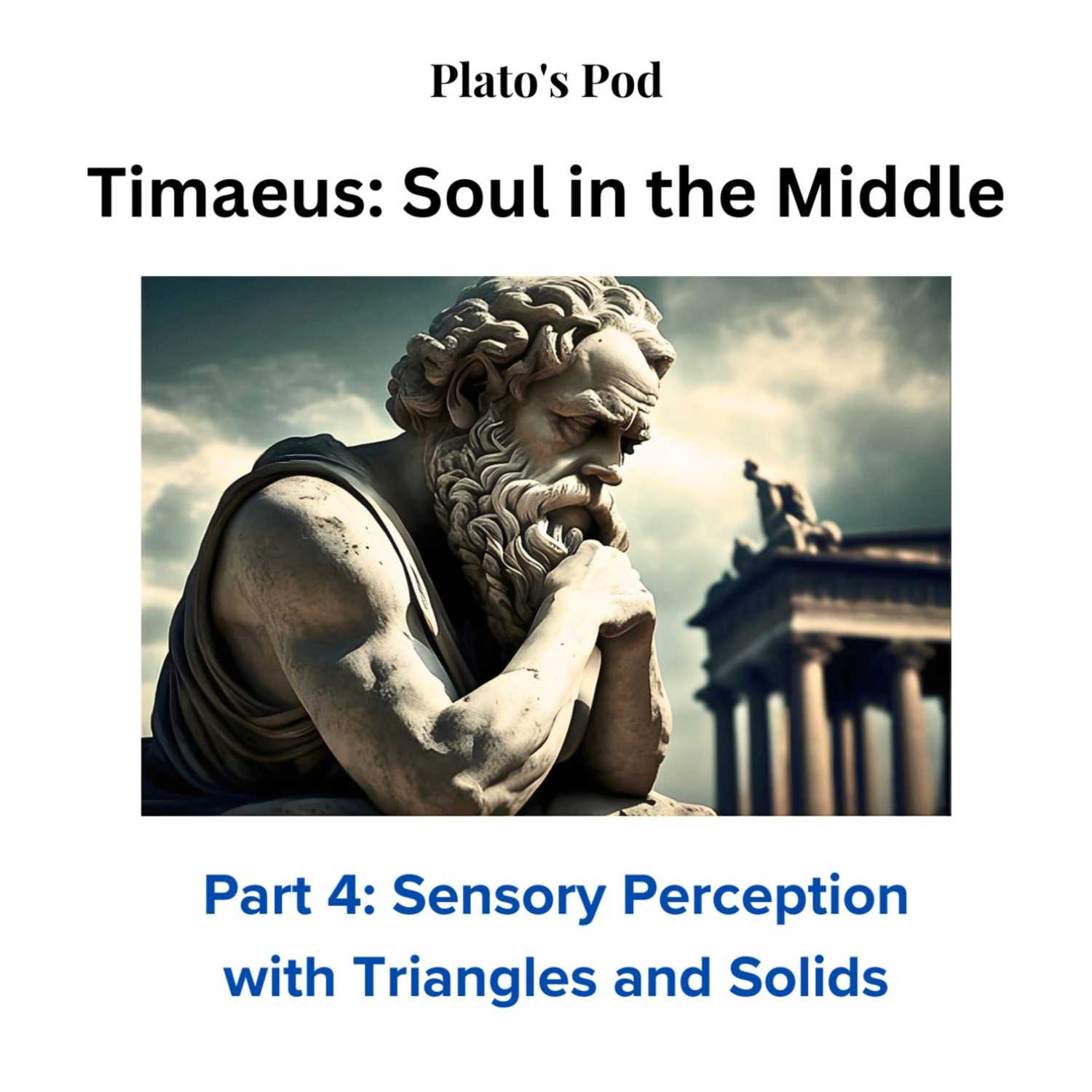
Plato’s Pod concluded its revisiting of Plato’s Timaeus, covering from 53(a) to 72(d) with a focus on sensory perception in relation to triangles and what have come to be known as the five Platonic solids because of this dialogue. It was 2,400 years ago, when Plato wrote Timaeus, that he revealed to the world knowledge of the only five regular solids in the universe. Why did Plato, who was a geometer as well as a philosopher, go to great lengths to make the character Timaeus discuss triangles and the five regular solids in such detail? A fascinating discussion ensu...
Plato’s Timaeus Revisited, Part III: Perceiving Imitations of Being as they Become
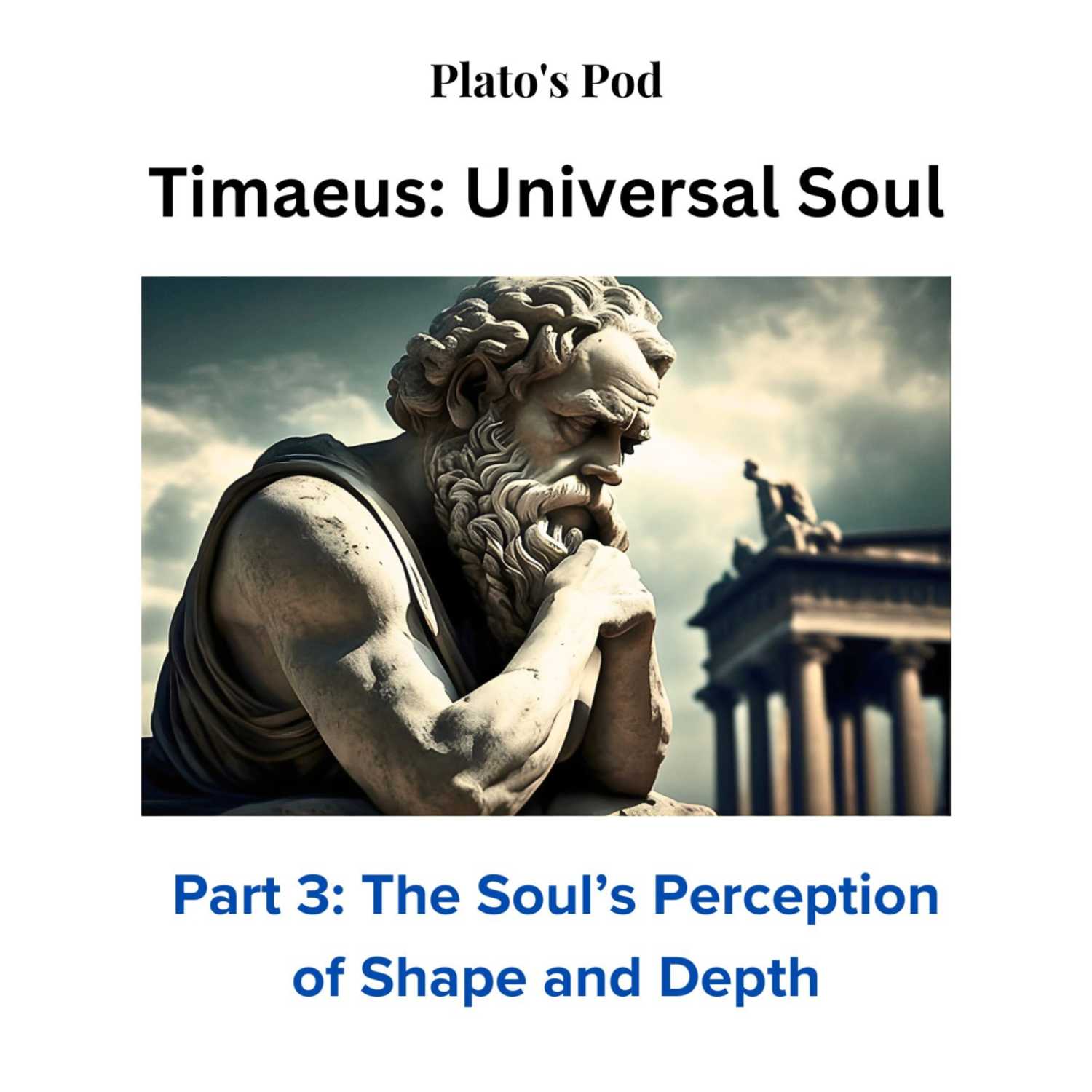
How does perception of shape relate to our understanding of time, when everything we see, touch, taste, smell, and hear is in a constant state of motion and change? The question occupied members of the Toronto, Calgary, and Chicago Philosophy Meetup groups on November 5, 2023 in reading the assertions of the astronomer Timaeus on the interplay of proportions and probabilities in a spherical universe with a soul circling around its middle. Beginning at 48(a) in the dialogue, Timaeus introduces the concepts of Necessity, a container for the limits of things in the process of Becoming, and the four fundamental physical...
Plato's Timaeus Revisited: Part II - A Universe Centered on the Soul
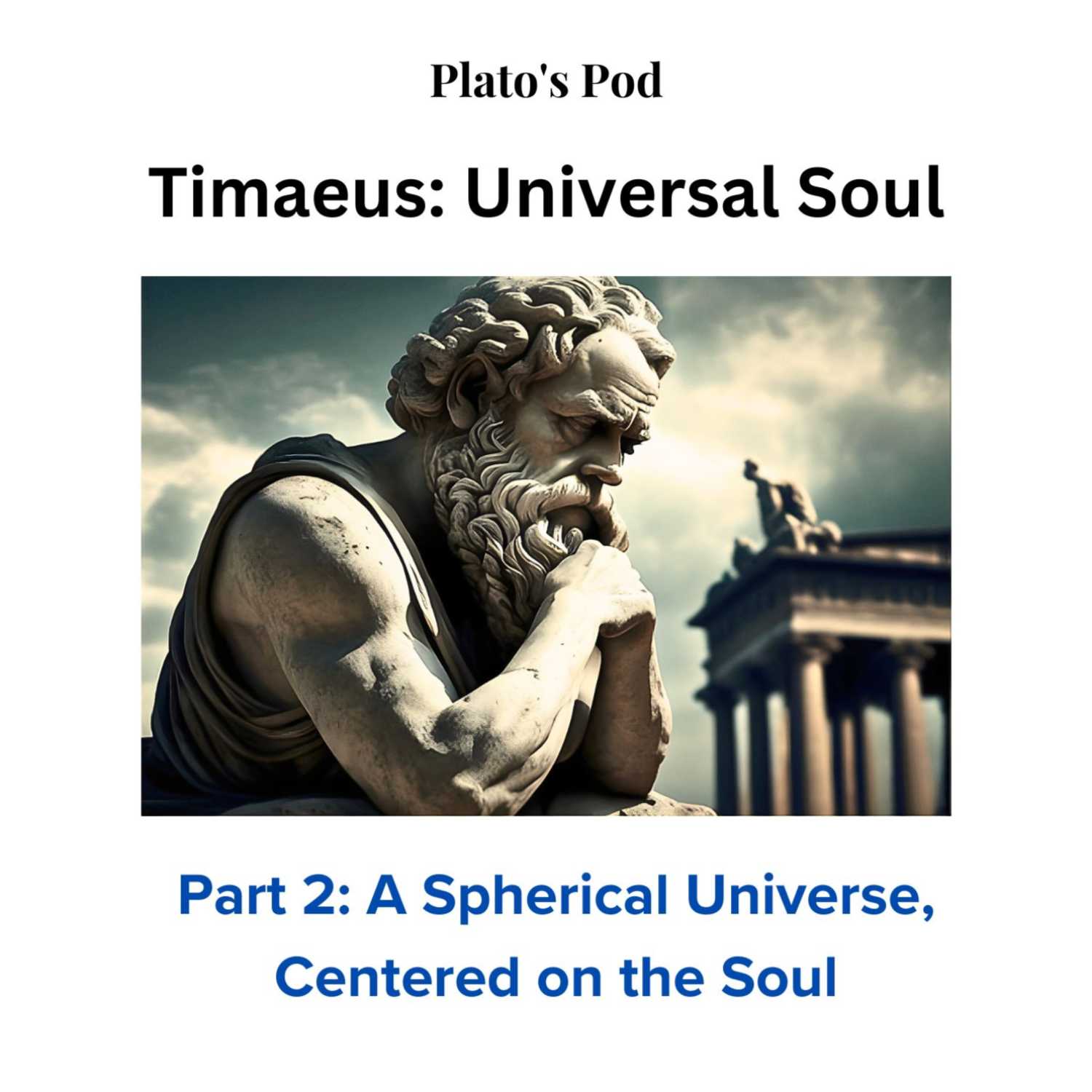
Plato’s Pod continues its coverage of Plato’s Timaeus, from 30(d)-47(e) where the astronomer Timaeus explains the construction of the universe centered on the soul. On October 22, 2023, members of the Toronto, Calgary, and Chicago Philosophy Meetup groups discussed the soul’s vantage in the timeless realm of Being relative to motions in the universe’s physical realm of Becoming, and our capacity for reason to differentiate and integrate information received from the physical senses. Timaeus claims that knowledge of proportion is essential to reason, which is one of the questions that the group considered. Participants brought forward...
Plato's Timaeus Revisited: Part I – Cities in Motion for both Observer and Observed
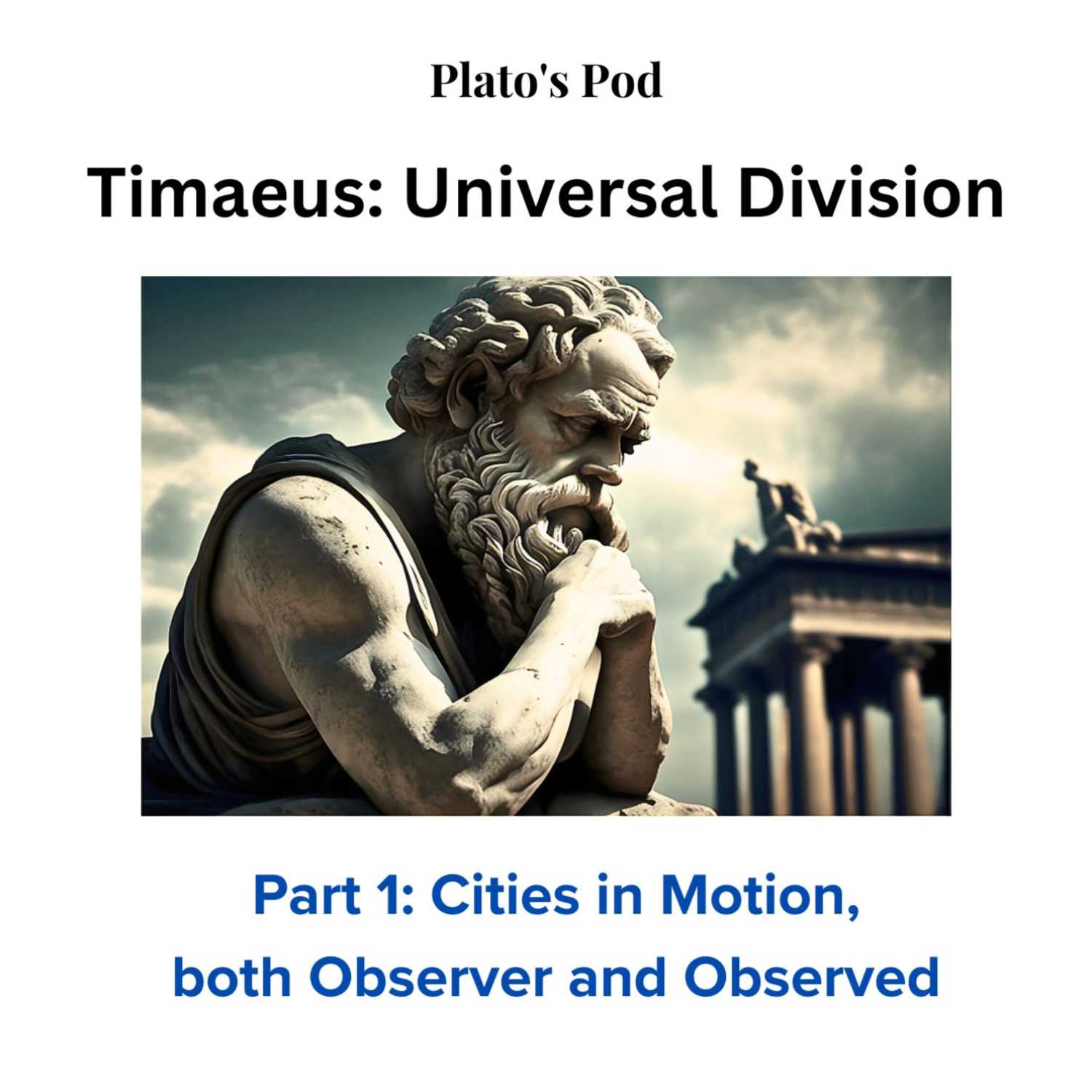
Why does Plato’s Timaeus, on the creation of the universe, begin with Socrates disavowing the imagined city of The Republic? As Socrates and the astronomer Timaeus review their discussion of the previous day, which was the basis of Plato's epic on justice and political organization, Socrates declares that he can’t picture the idealized city in motion. It’s a question discussed by members of the Toronto, Calgary, and Chicago Philosophy Meetup groups on October 8, 2023, when Plato’s Pod revisited the first part of the Timaeus, covering to 30(d). Why does Plato's dialogue then go on to discuss the lege...
What Would Socrates Say About ChatGPT?
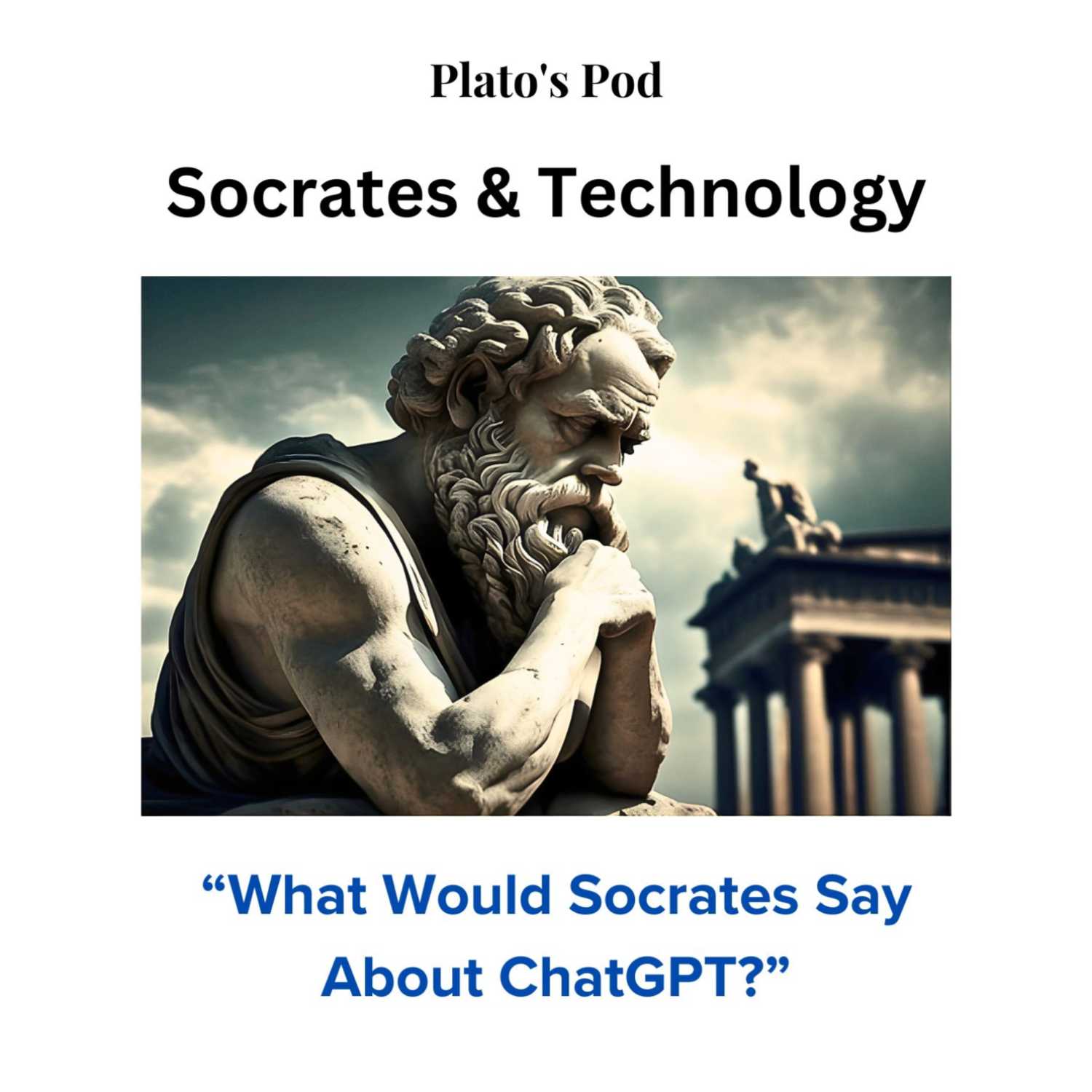
Plato’s Pod introduces its 4th season by demonstrating the relevance of ancient philosophy to modern technology with the question, “What Would Socrates Say About ChatGPT?” We take Socrates to the offices of OpenAI to meet the company’s CEO, Sam Altman, and imagine the questions that Socrates would have after the technology is explained to him. In the course of the imagined meeting, we bring a number of Plato’s dialogues previously featured in the podcast into consideration, including the Cratylus, The Republic, the Phaedo, the Phaedrus, the Meno, the Statesman, the Theaetetus, the Critias, and the Philebus. What do yo...
Plato's Crito: The Constitution of Souls
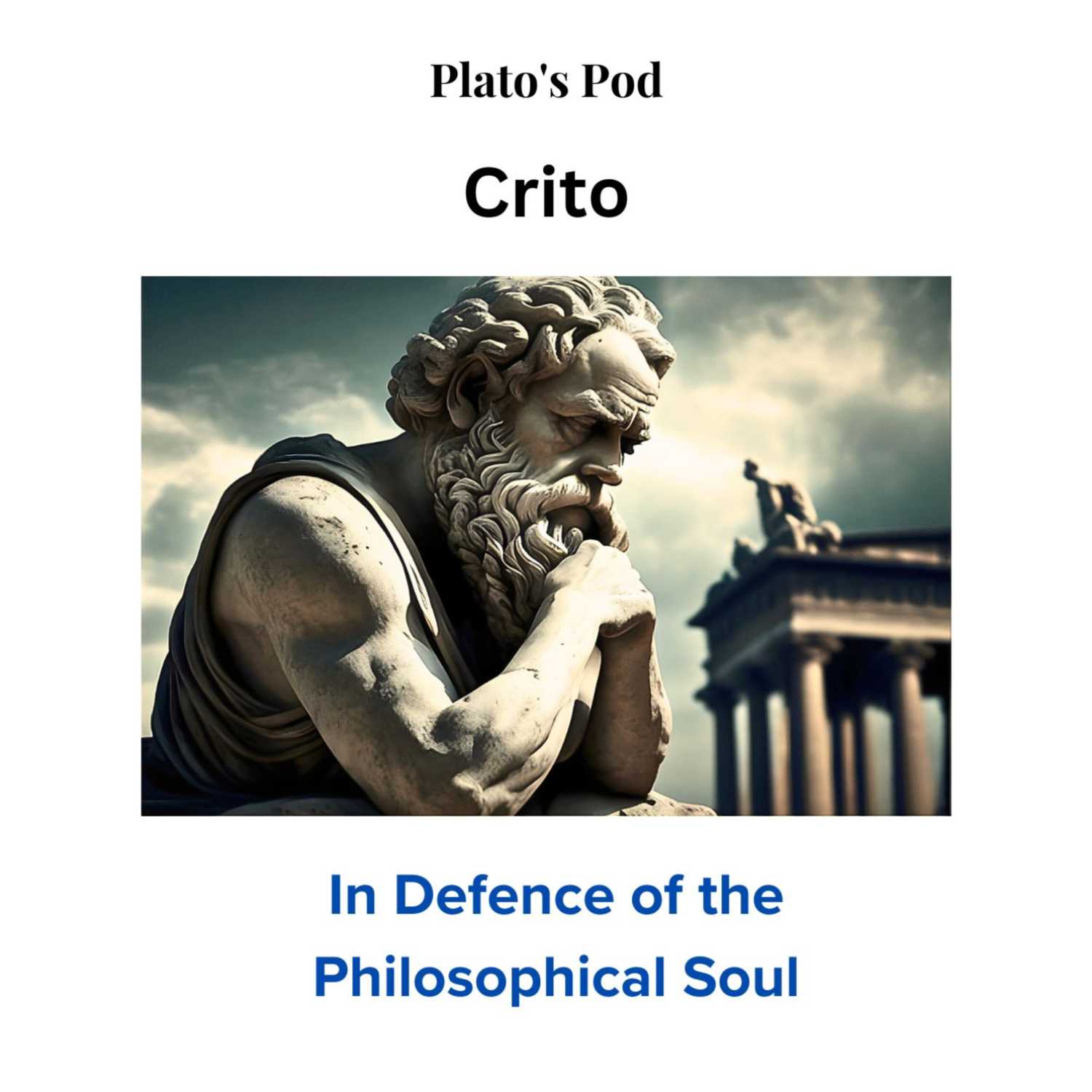
What is our relationship with the laws of the society of which we are a part, and what should we do when the laws are misapplied by a misguided majority? For Socrates, in Plato’s Crito, the answer was clear: to endure the consequences, since he benefited from Athenian society and its constitution for seventy years. Wrongly convicted, and faced with his execution in two days, Socrates tells his friend Crito that it is not right for an individual to take the laws into his own hands, even if the laws have been corrupted by their custodians. On June 26, 2023, members of...
Plato’s Ion: The Stories That Souls Trade
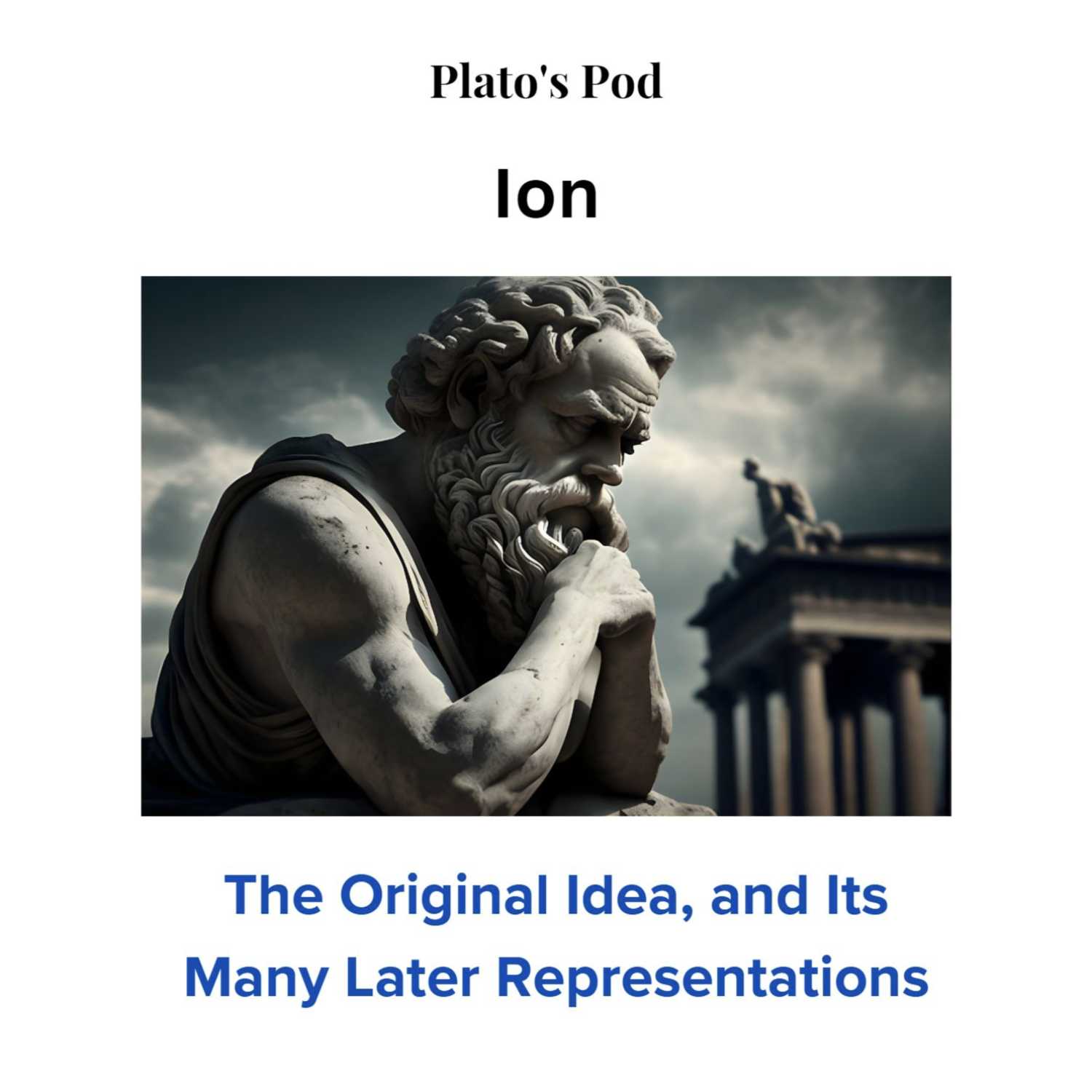
“We are all Ions,” one participant observed, and maybe that’s truly the case if each one of us is a link in a storytelling chain. In Plato’s dialogue the Ion, Socrates reminds the title character, who is a proponent of the poet Homer, that since Homer represented an idea, Ion is representing Homer’s representation. With each successive representation, some of the original idea is altered to suit the memory and external influences acting on the storyteller. Is each one of us acting as a representative of a representative of one, or many, original idea(s)? Plato’s short dialog...
Platio's Symposium, Part 3: Knowledge Versus Mastery, and Love's Light in The Cave
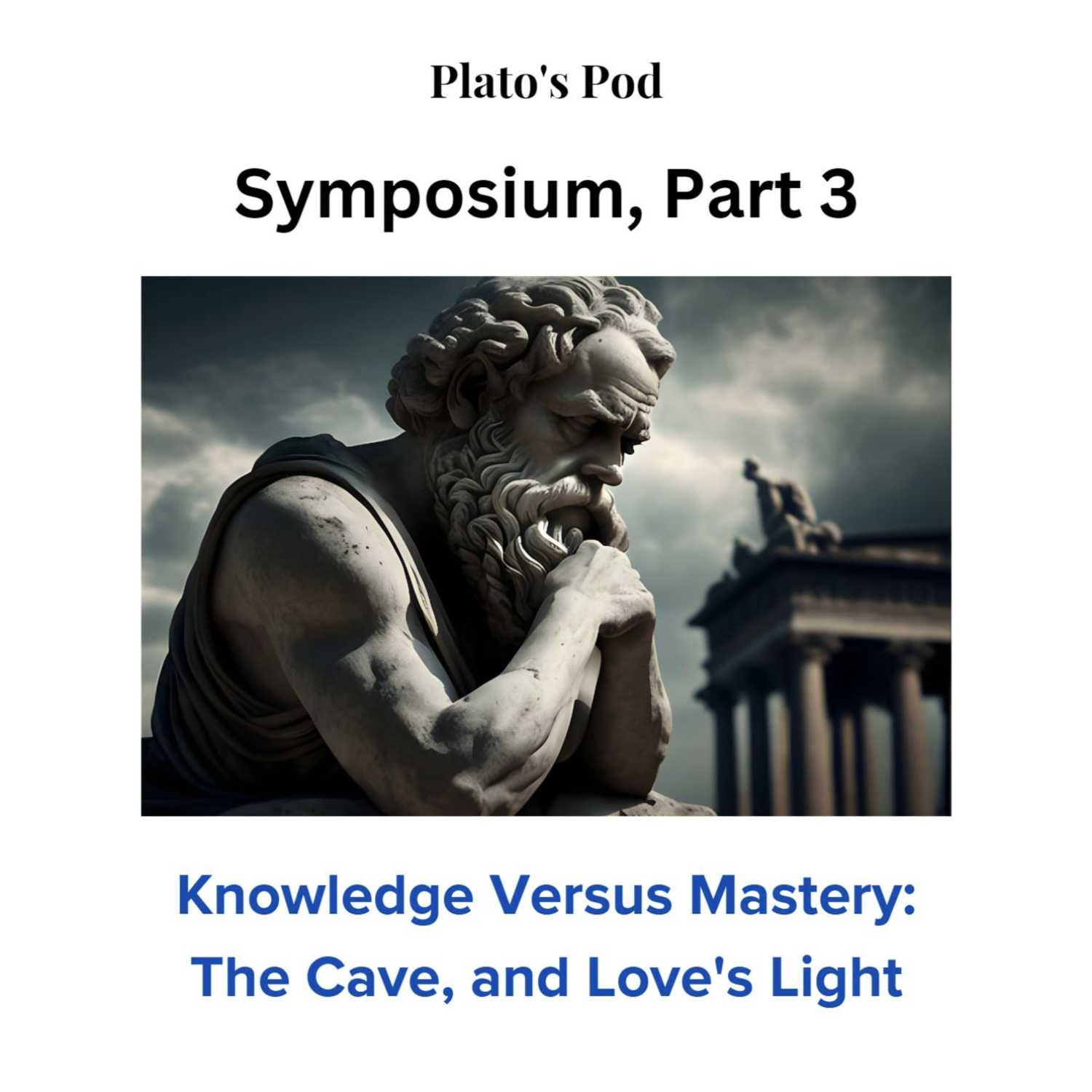
In the opening of the last third of Plato’s Symposium, the very drunken Alcibiades erupts in a comic and dramatic demonstration of his love for Socrates. When members of the Toronto, Calgary, and Chicago Philosophy Meetup groups met on May 28, 2023, we noted that whereas the previous six speeches were about love in the abstract, Plato chose to end the dialogue with the practical. In our discussion, Alcibiades was compared to the prisoner in the cave of Plato’s Republic, caught in between, and pained by, the contrast of the light of love’s beauty and the shadowy images on the...
Plato's Symposium, Part 2: Love and the Immortal Good
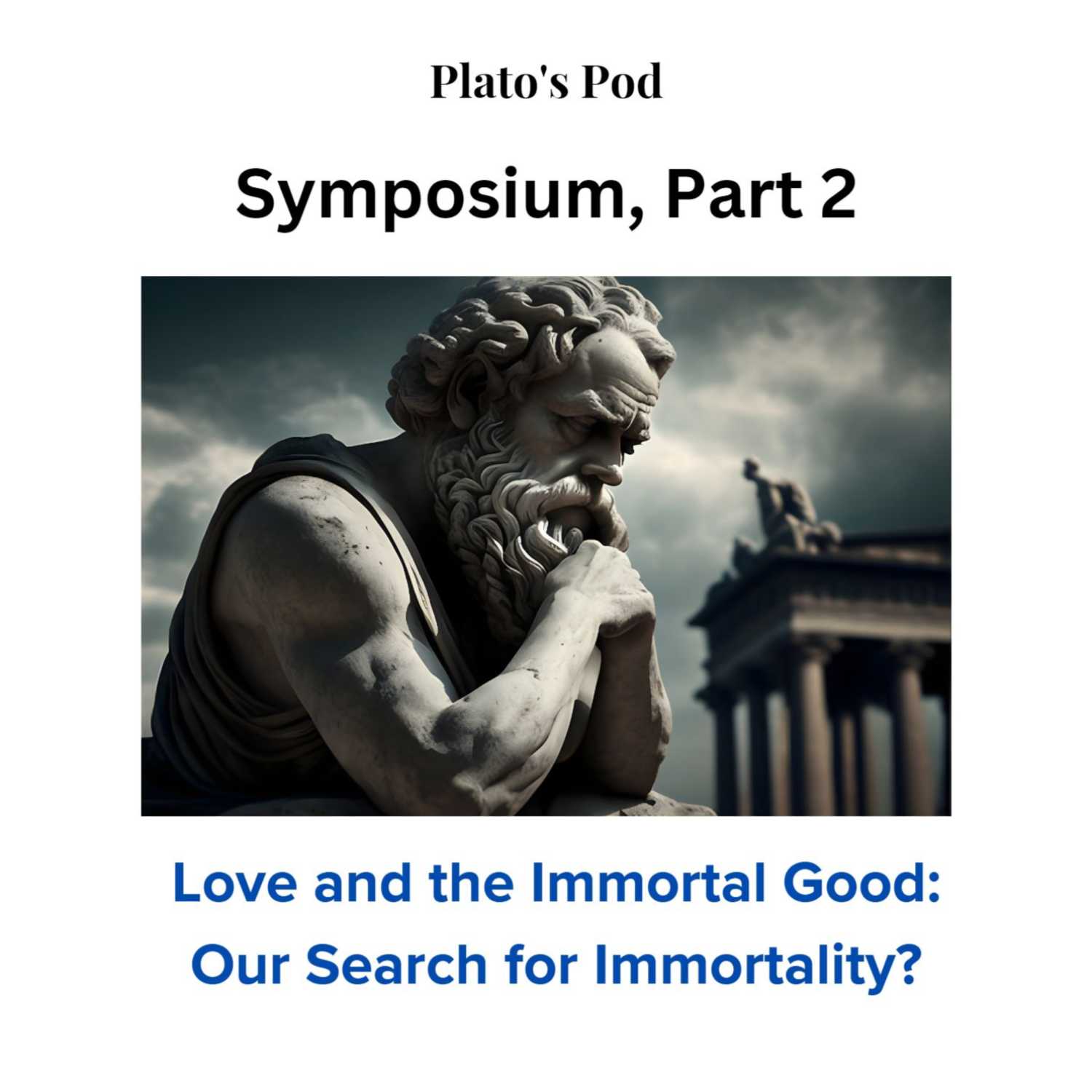
Speeches on love, first by Aristophanes, then Agathon, followed by Socrates who relates the wisdom of Diotima, lead us to wonder whether love is, as Diotima says, the mortal human's search for the immortality of the universe. On May 14, 2023, members of the Toronto, Calgary, and Chicago Philosophy Meetup groups gathered to piece together the grains of truth from the first six speakers in the symposium, or drinking party, attended by hungover Athenians. In our discussion, we agreed that love is expressed not only between humans, but by philosophers who are, by definition, lovers of wisdom. Some fascinating perspectives on...
Plato's Symposium, Part 1: Love's Poetry, Bearing Individual and Universal Truths
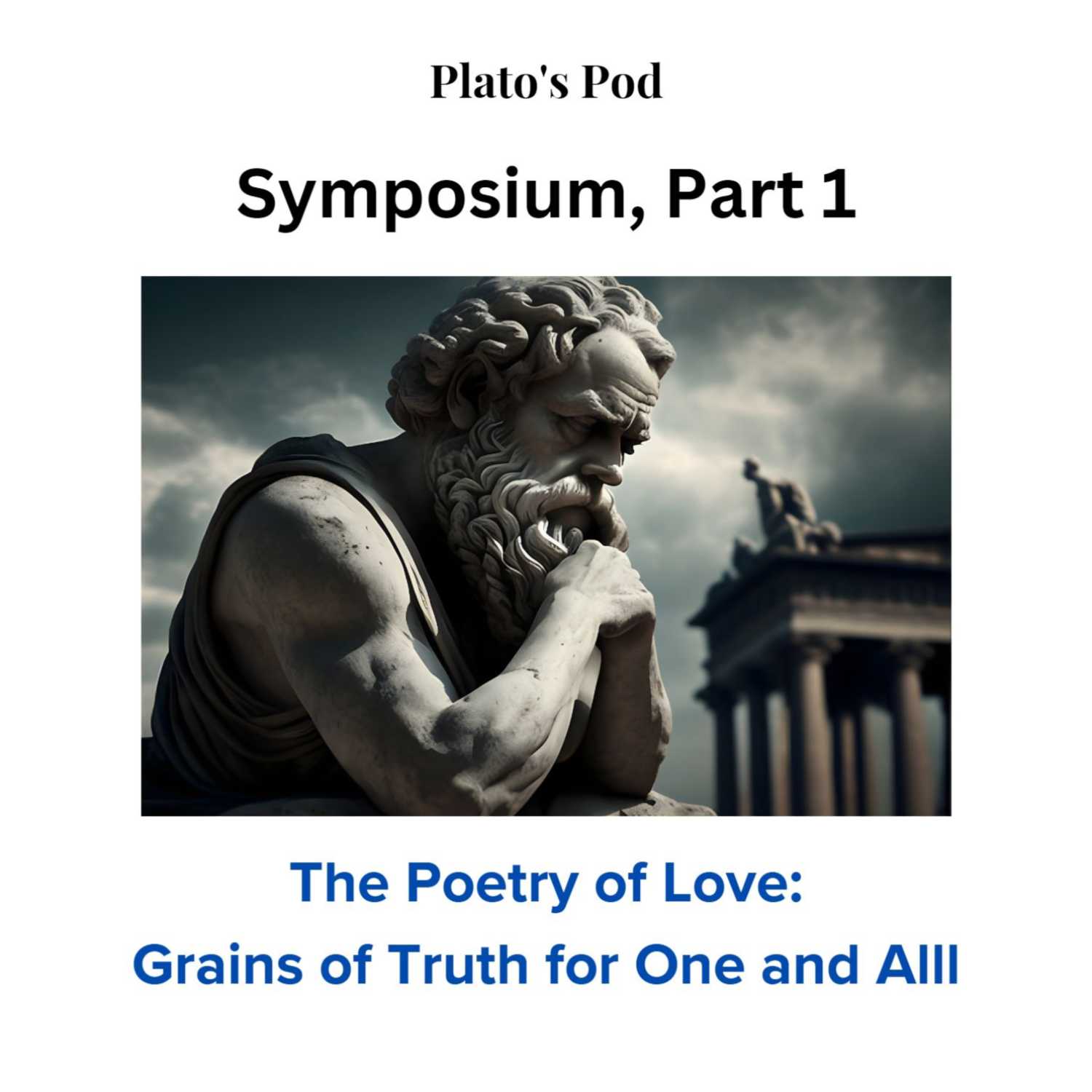
In our first of three sessions on Plato's Symposium, the dialogue on love that occurs among a group of hungover Athenians, participants from the Toronto, Calgary, and Philosophy Meetup groups pointed to grains of truth in the poetry of love presented by three speakers at the symposium. On April 30, 2023 we met to read parts of the three speeches, each of which examines love from a different perspective, to look for a common thread. Is love a god that rules over us, or is love ours to fashion? Love, several members reminded us, is not just between people, but also between...
Plato’s Hippias Minor: Truth, Lies, and Feedback Loops
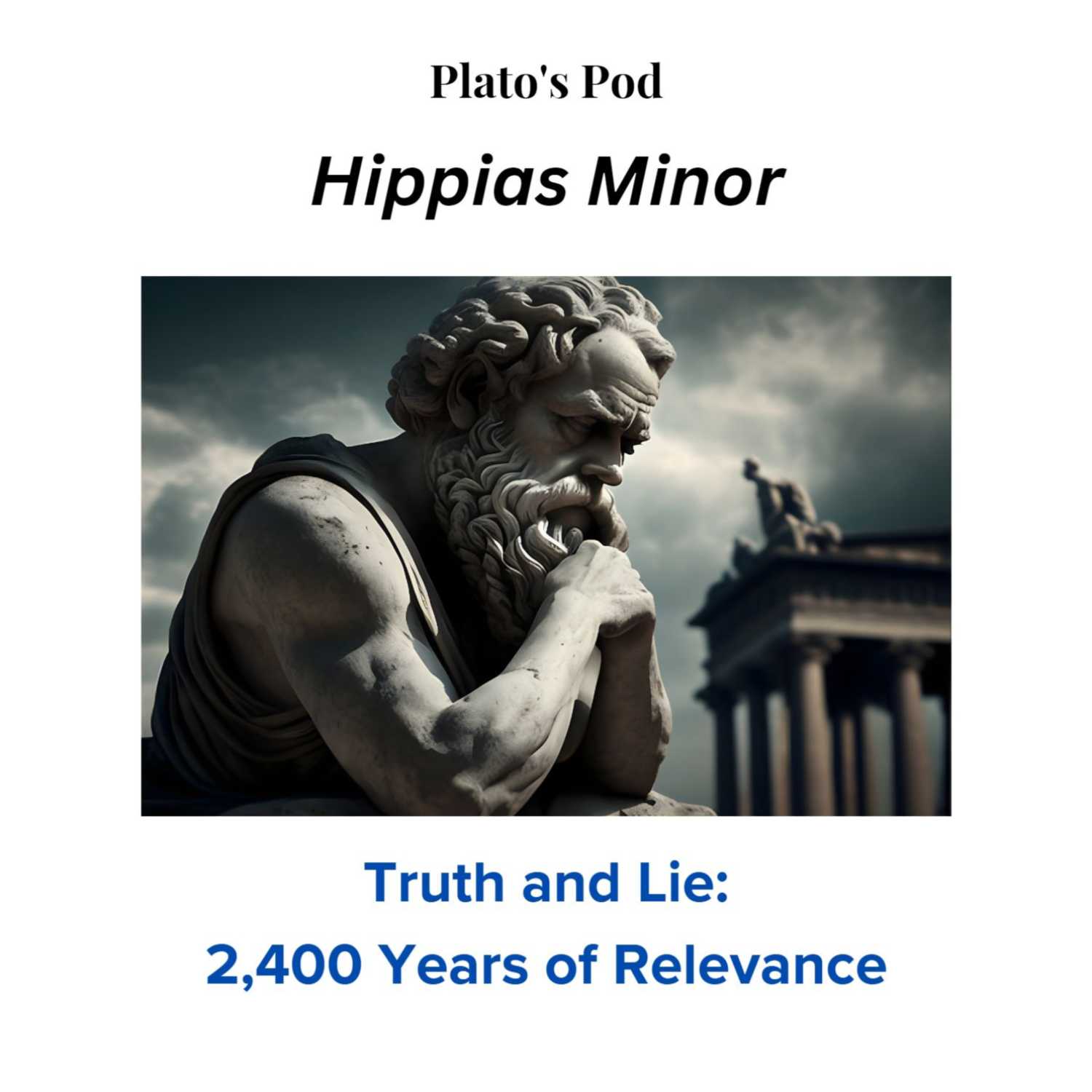
What is the truth? In our previous discussion, we heard the conclusion of Socrates that measurement is the greatest skill that we can exercise. The title character of Plato’s Lesser Hippias, or Hippias Minor, is unable to separate cause and effect in the motions of time, and the dialogue challenges not only Hippias but the reader to measure the difference that separates truth and lie – not just in objective physical outcomes but also in subjective value judgments. It’s a matter of special importance now, 2,400 years later, as technology is used to generate and broadcast value judgments globally, often anonym...
Plato's Protagoras, Part 3: In Virtue of What Does Good Outweigh Bad?
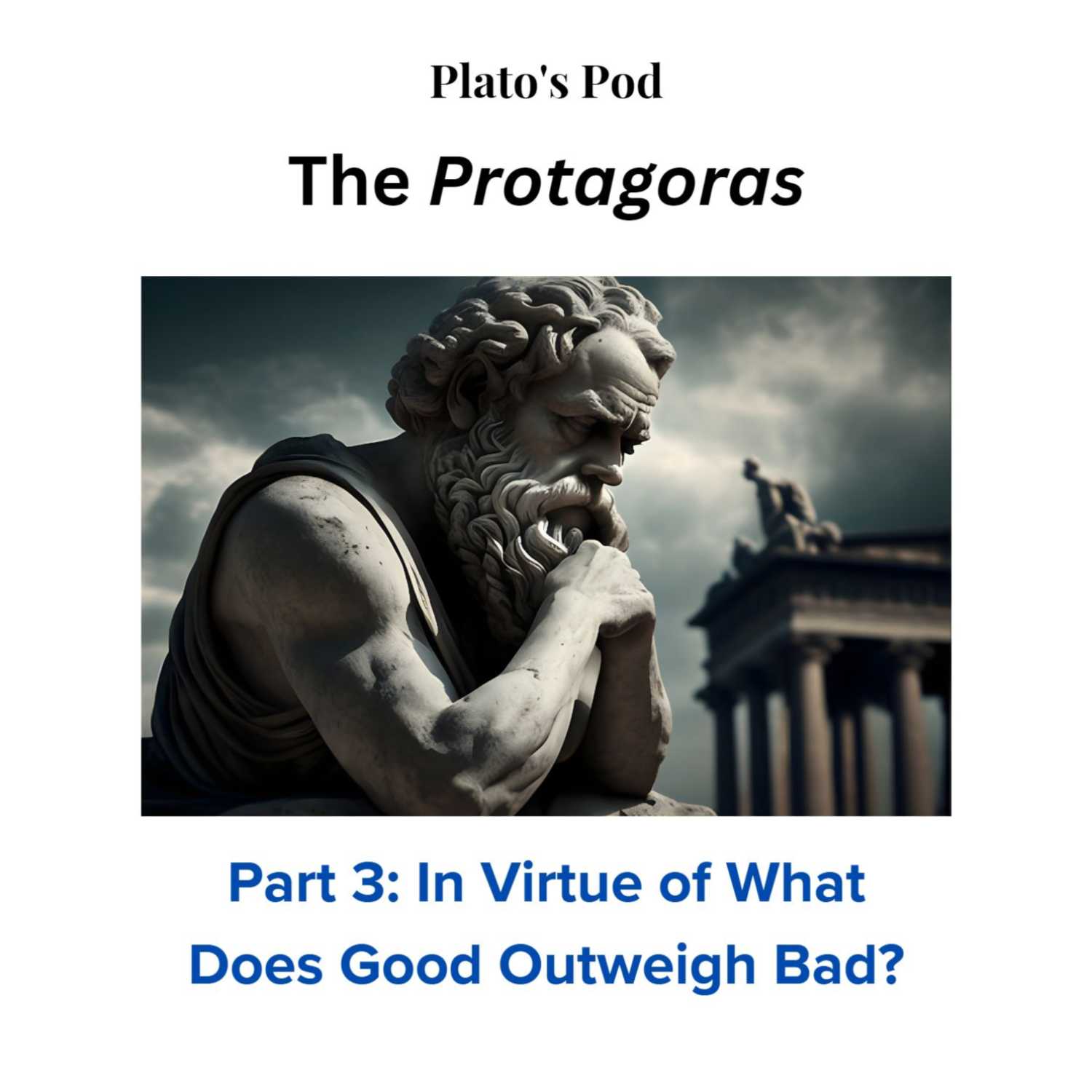
In concluding our 3-part series on Plato’s Protagoras, a consensus may have emerged that virtue is not a universal form – but if it has no consistent definition, what is virtue, and can it be taught? Members of the Toronto, Calgary, and Chicago Philosophy Meetup groups convened on March 26, 2023 to consider the teachability of virtue, which is the subject of Plato’s dialogue. If virtue is really a form of knowledge, as Socrates concludes, then it can be taught, but that would contradict Socrates’ initial view that virtue is not teachable. Meanwhile, the position of the sophist Protagoras appears to have cha...
Plato's Protagoras, Part 2: Is Virtue One Thing or Many?
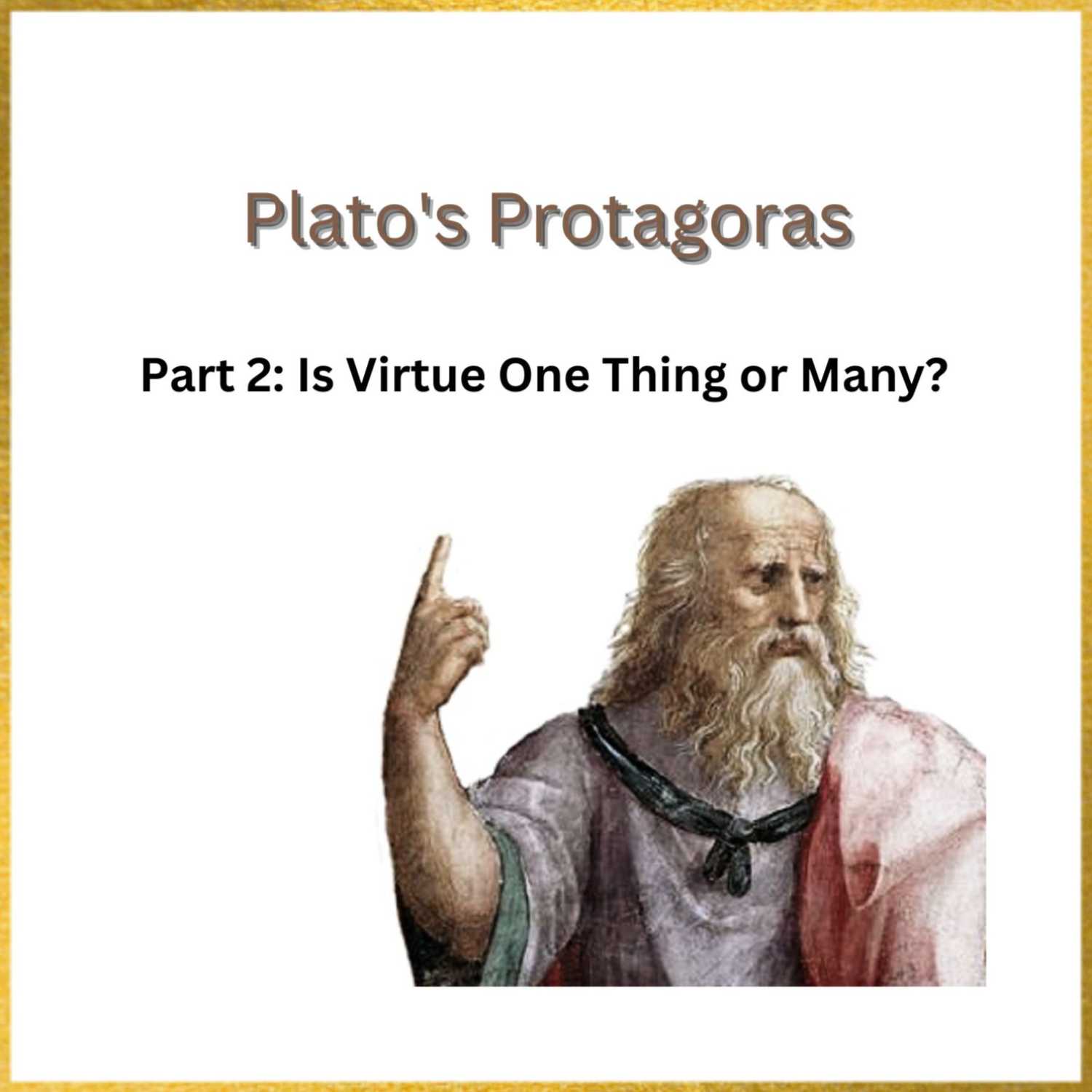
Is there a first principle of virtue? If virtue is knowledge that can be taught, does the teacher need to know the limits of virtue as a single thing - or does virtue consist of a range of attributes, each with different limits that are somehow connected? These and more questions on the nature of virtue were the subject of discussion on March 12, 2023 among members of the Toronto, Calgary, and Chicago Philosophy Meetup groups. In considering the dialogue between Socrates and Protagoras, the former holding that virtue is unteachable and the latter claiming qualifications as its teacher, some felt...
Plato's Protagoras, Part 1: Can Virtue Be Taught?
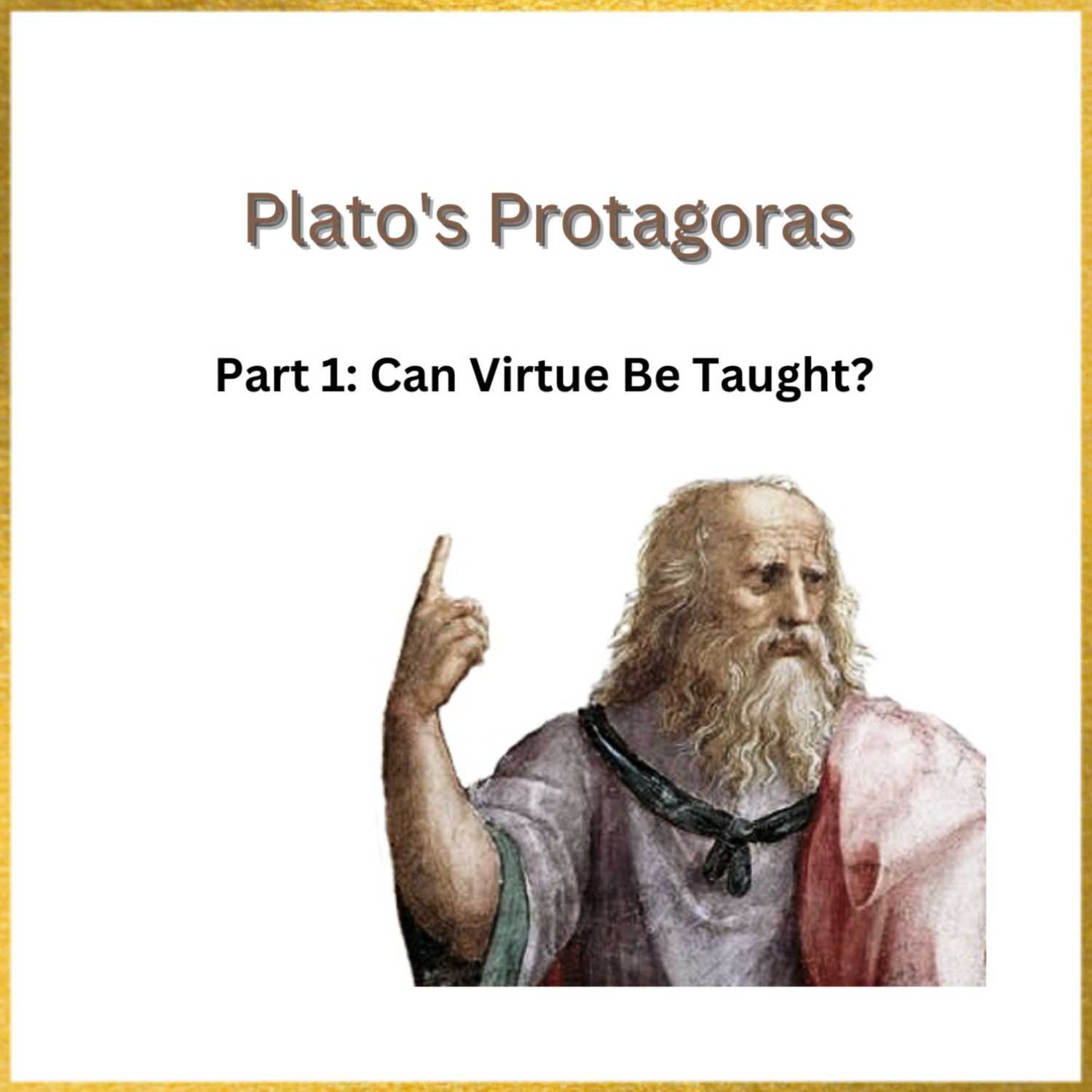
Plato’s dialogue Protagoras revolves around the question of whether virtue can be taught. If it can, then how do we define virtue? Is there a universal form for virtue, one thing alone that defines virtue regardless of our cultural, religious, or family circumstances? If virtue is not taught, how would anyone acquire the essential attributes that are needed to govern societies such as ours? Whether the sophist Protagoras has a valid justification for his selling of knowledge or not, Socrates’ position that virtue cannot be taught came under fire during the discussion of members of the Toronto, Calgary, and...
Plato's Philebus, Part 3: The Philosopher's Arithmetic
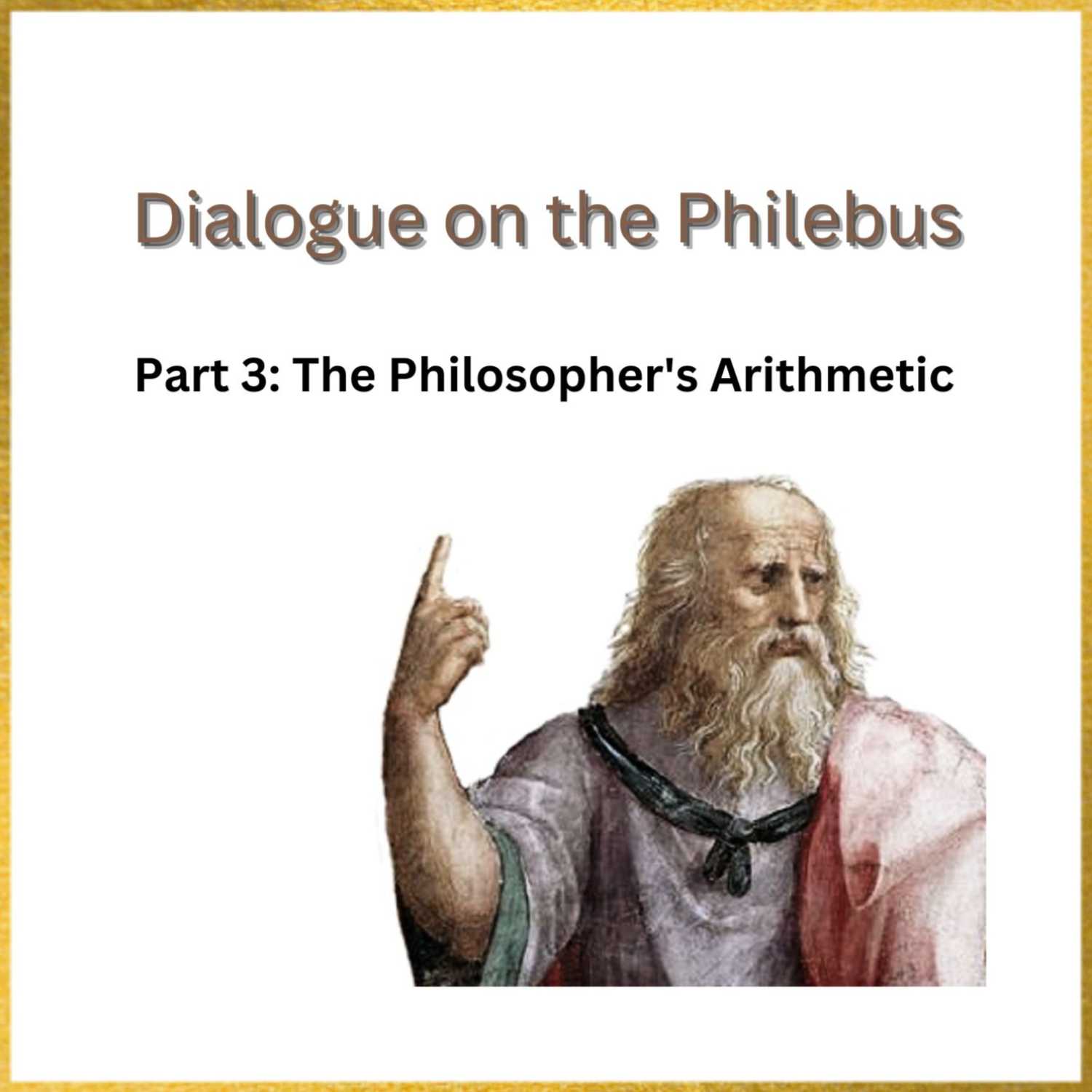
In our exercise of reason to judge the harmonious mixture of pleasure and knowledge in the good life, Socrates ranks first the skill of measurement. In the conclusion of Plato’s Philebus, we learn that measuring the combination of limits in becoming and the unlimitedness of being requires a special type of ability. On February 12, 2023, members of the Toronto, Calgary, and Chicago Philosophy Meetup groups met to consider the distinction that Socrates makes between the “Philosopher’s arithmetic” and the everyday mathematics taught in school. Acknowledging that limits in the present state of becoming are unknowable, the philosopher continuously divides...
Plato’s Philebus, Part 2: Does the Universe Have a Soul and Reason?
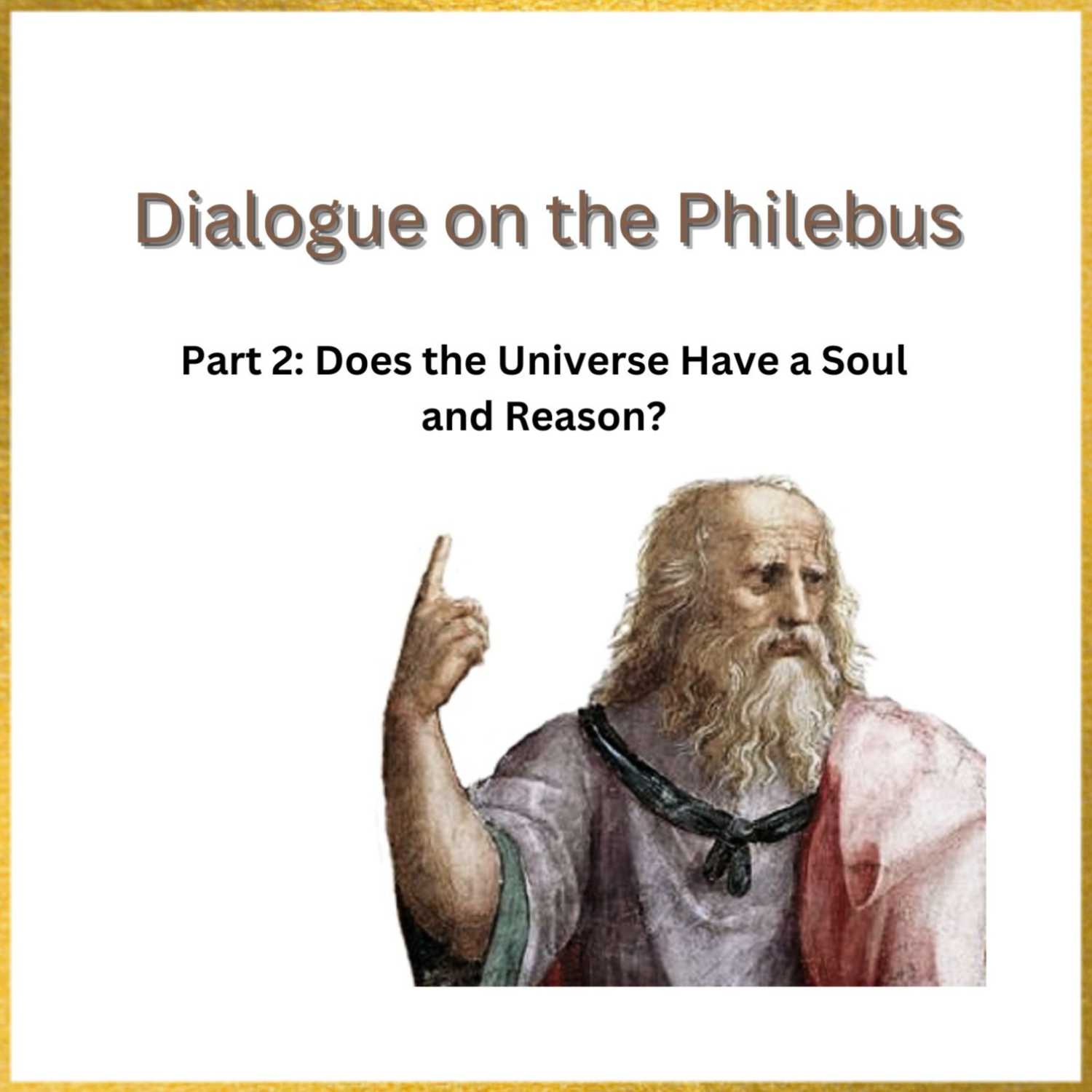
Where does the human soul come from, if not the universe of which we are part? The question that Socrates poses relates to his assertion that everything comes to be from a cause, as he and Protarchus search for the causes of the soul’s pleasure in things that in time neither are, nor ever were, nor ever will, be. In the second of three meetings on Plato’s Philebus, members of the Toronto, Calgary, and Chicago Philosophy Meetup groups met on January 29, 2023 to consider the unlimited nature of pleasure within the limits of becoming, and the role of reas...
Dialogue on the Philebus, Part 1: The Universe of Memory, Knowledge, and Limits
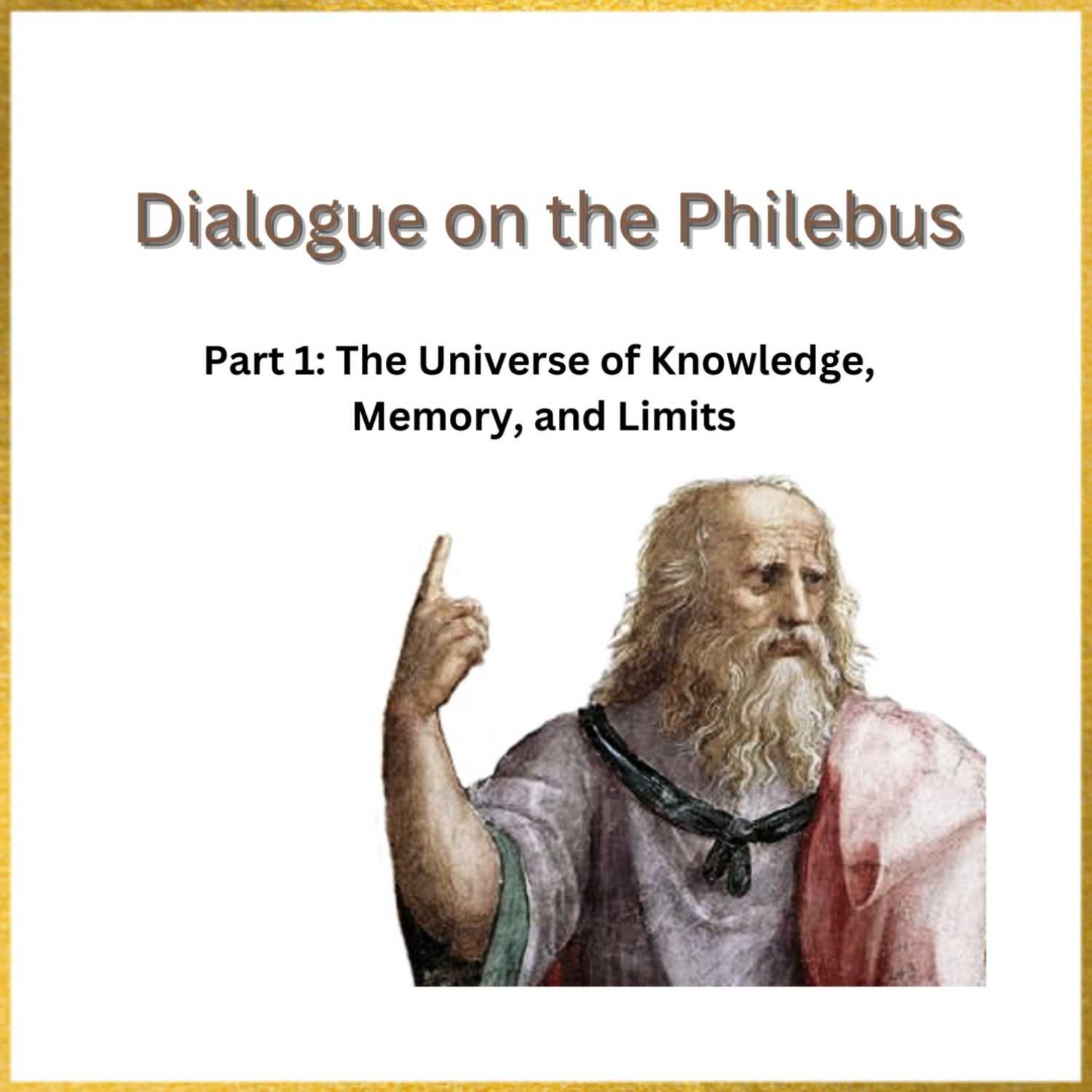
What is the good? Why do we each measure the good differently, and what calculation do we apply to know the more from the less? Can we really know the good unless we fall in love with the good? These and other questions echoed many of Plato’s other dialogues throughout the first of three discussions on the Philebus, when members of the Toronto, Calgary, and Chicago Philosophy Meetup groups met on January 15, 2023. In Plato’s dialogue, Socrates and Protarchus quickly reach a conclusion that the good life consists of a mixture of knowledge and pleasure, not a life that...
Plato's Greater Hippias: The Measure of Intelligence
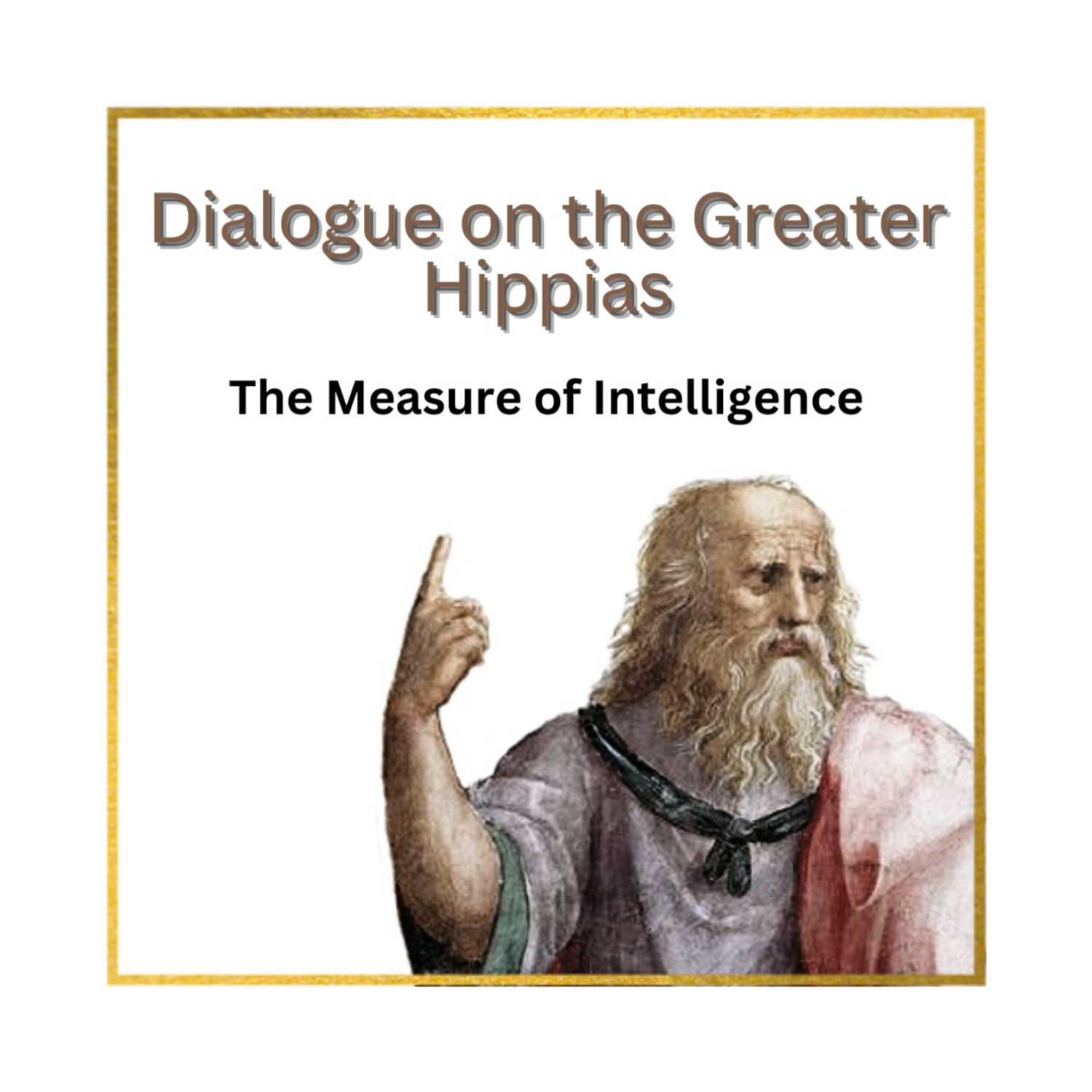
Time, and our understanding of sequences of cause and effect in the order of time, emerged as themes in our discussion of Plato’s Greater Hippias. Members of the Toronto, Calgary, and Chicago Philosophy Meetup groups began their December 11, 2022 dialogue by considering the difference between intelligence – that the character Hippias claims to possess – and wisdom, which in Plato’s Cratylus Socrates defined as “knowledge of motion”. Are the limits of motion the general parameters for intelligence of cause and effect, which are the products of motion? There are many fine dramatic elements in Plato’s dialogue that lead us to wonder. If...
Dialogue on the Cratylus, Part 3: Things Good, True, and Beautiful
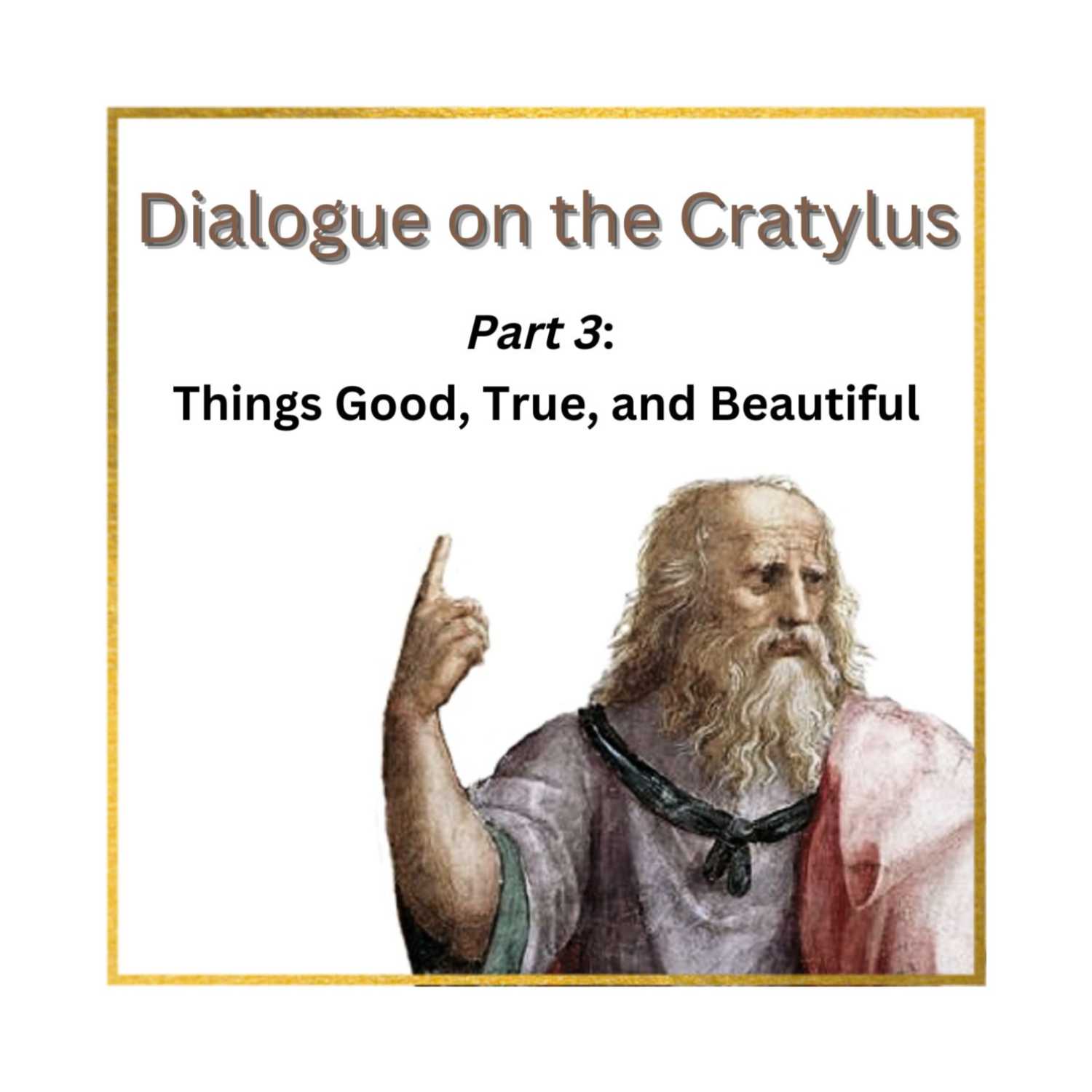
We concluded our 3-part series on Plato's Cratylus with another deeply insightful discussion that emerged as we joined thoughts on the nature of things - things being objects of thoughts. We explored the frontiers of thoughts and the motion of their limits, with a fascinating discussion on whether man is the measure of things, the question of what number is, and some thoughts on a logic in the geometry of things, together with many other thought-provoking observations. It seems one conclusion which might be drawn from the group's three discussions on the Cratylus is the truth of Socrates' assertion...
Dialogue on The Cratylus, Part 2: Being, Becoming, and Limits
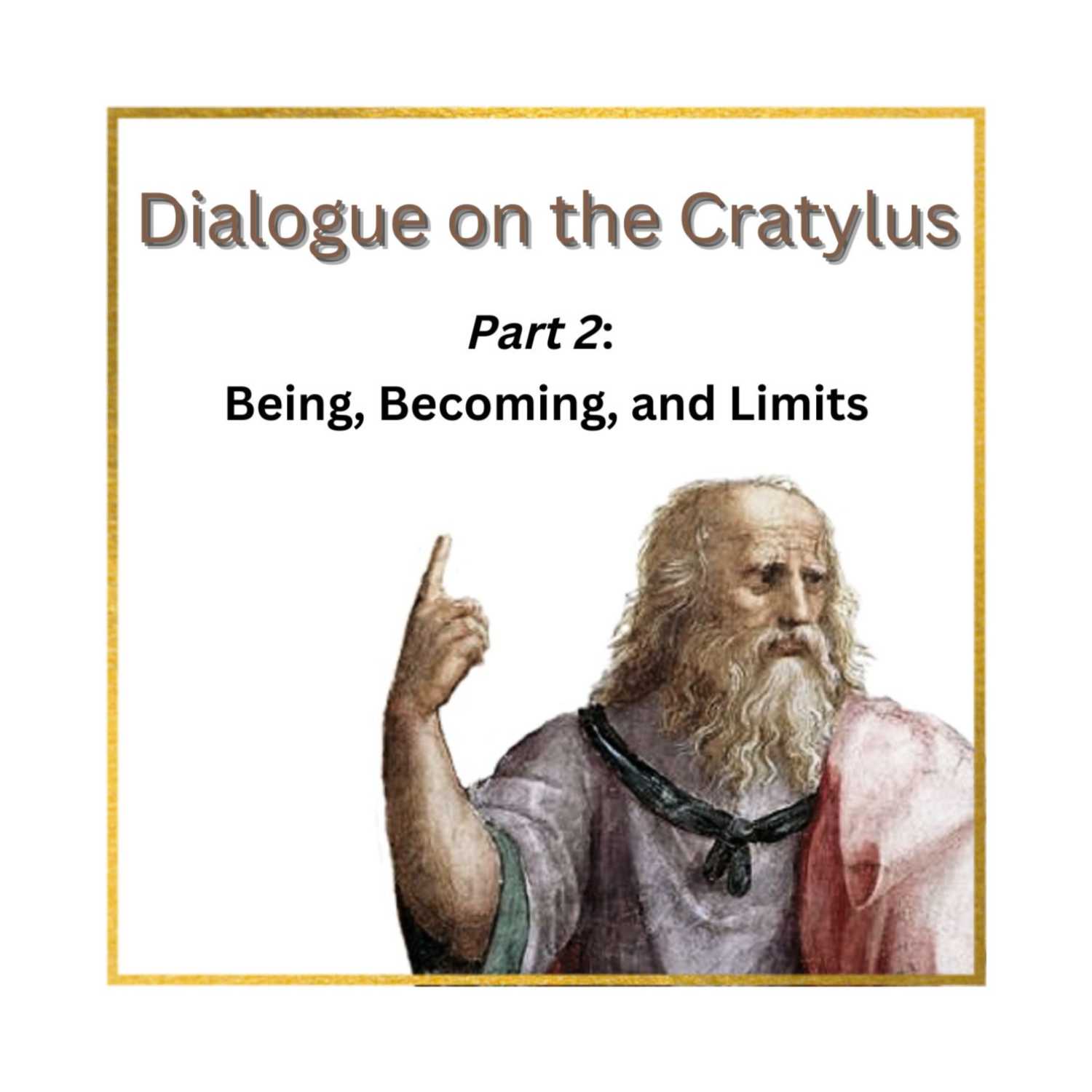
How do we perceive a thing – defined as an “object of thought” – both with limits and without limits? Socrates begins the second part of Plato’s Cratylus by examining our perception of being without limit in the names that we apply to the gods. Then he proceeds to consider differences when limits are applied to things in the continually changing state of becoming in the present. On November 13, 2022, members of the Toronto, Calgary, and Chicago Philosophy Meetup groups continued their discussion of the Cratylus and raised some fascinating ideas in relation to the universality of things. Does any thing have a per...
Dialogue on The Cratylus, Part 1: Distinguishing One Thing From Another
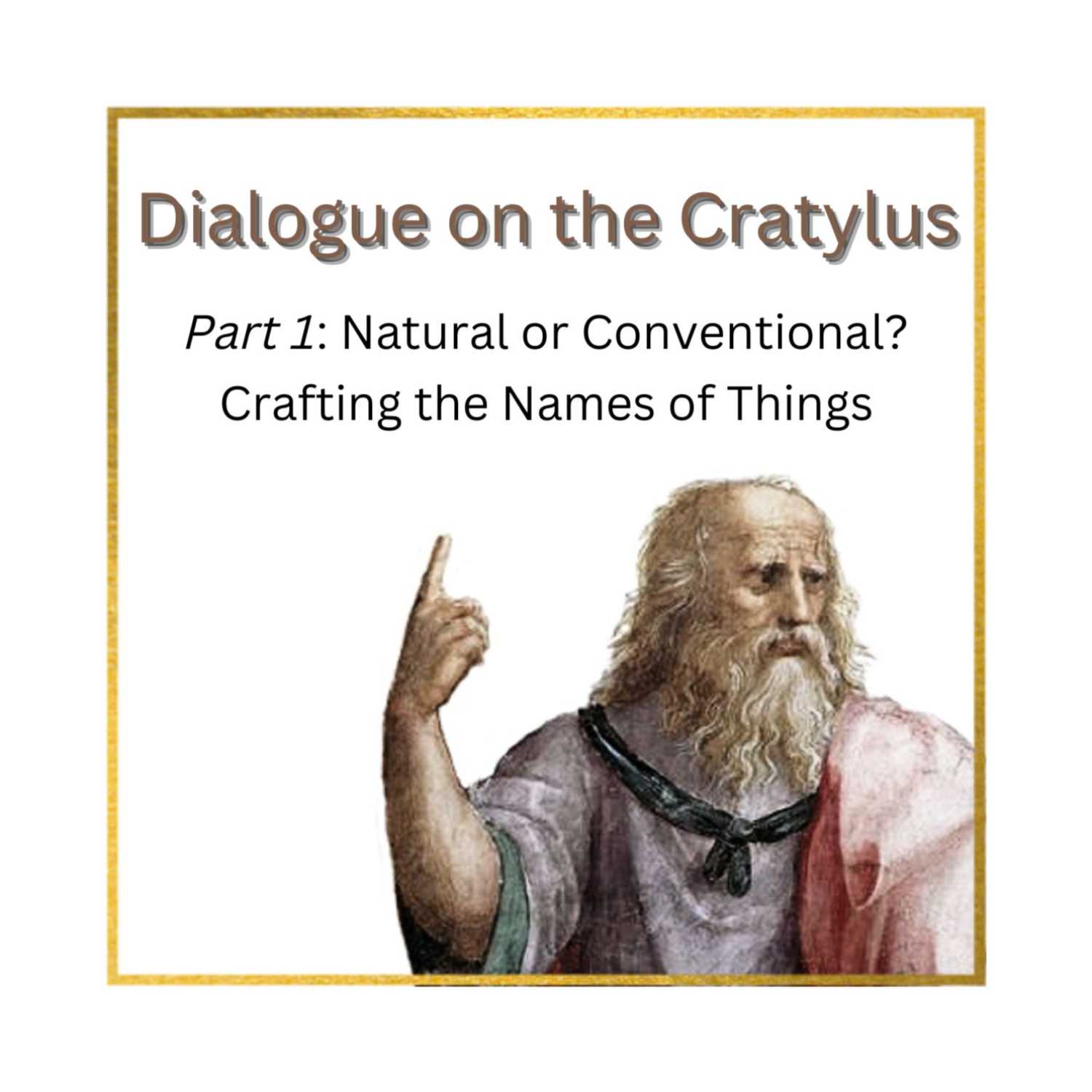
The focus of Plato's dialogue the Cratylus is the origin and use of names applied to things, and our understanding of their meaning in complex ideas exchanged by language. On October 30, 2022 members of the Toronto, Calgary, and Chicago Philosophy Meetup groups began by examining the meaning of the word "thing" as an "object of thought", to establish the very broad and crucial scope of Plato's work in the context of our perception. We debated whether words originate in nature or by human convention, and whether rules are set and supervised in the establishment of names. The question may be...
